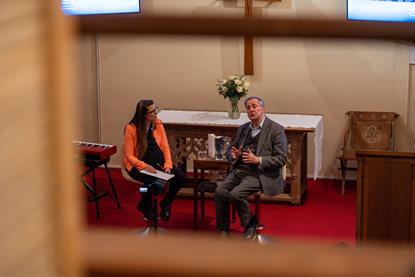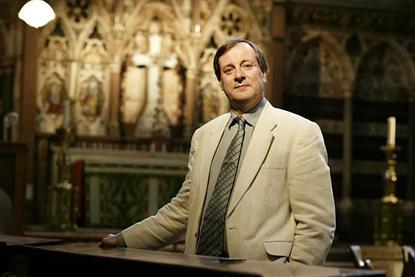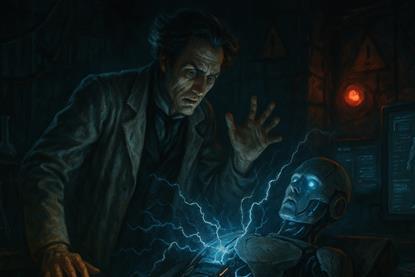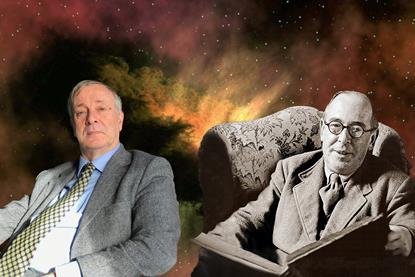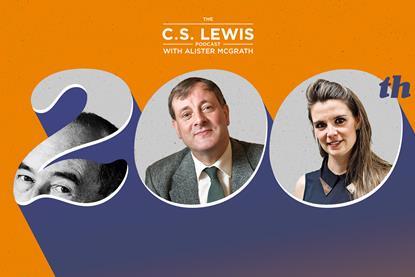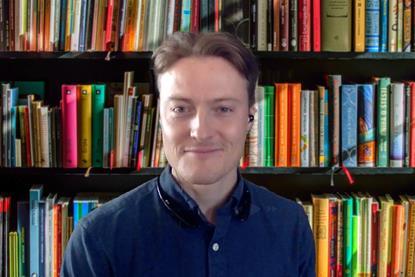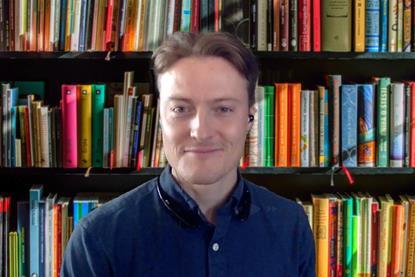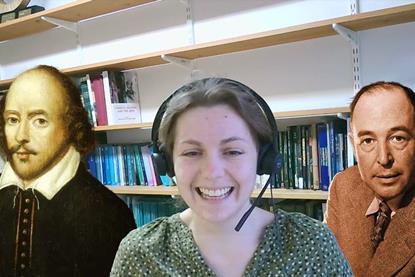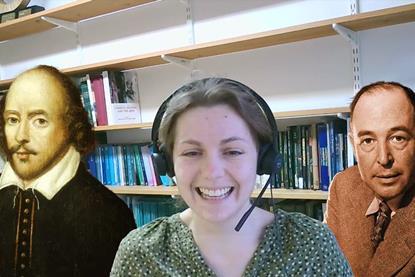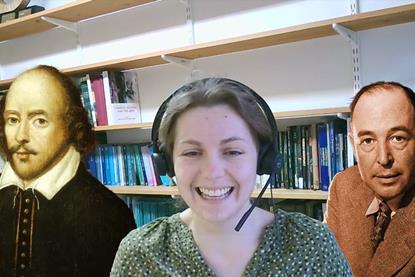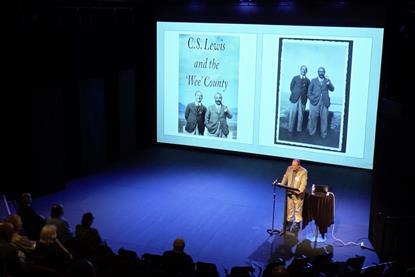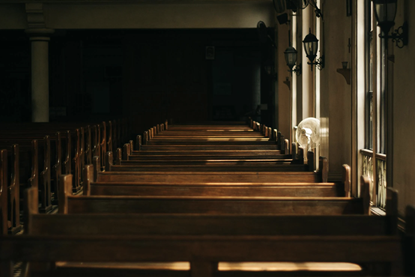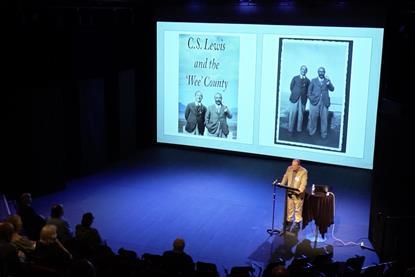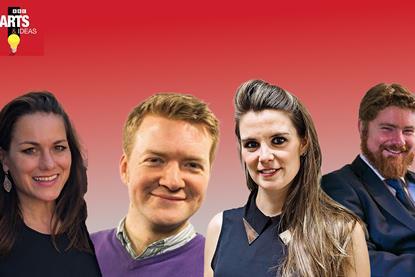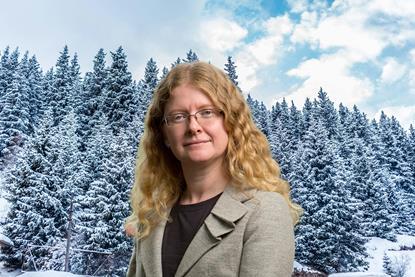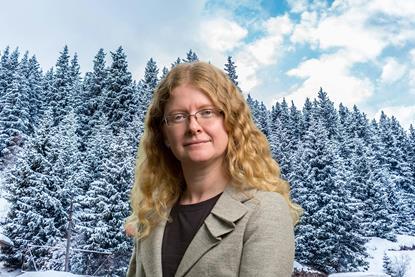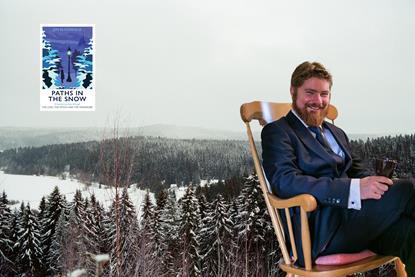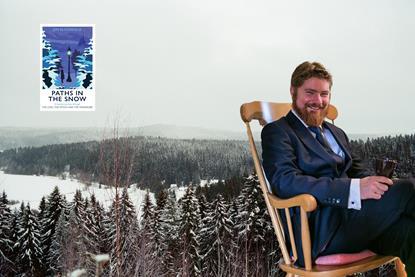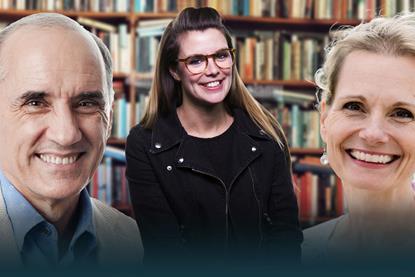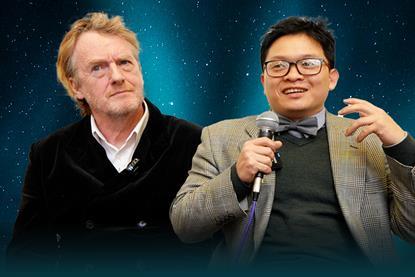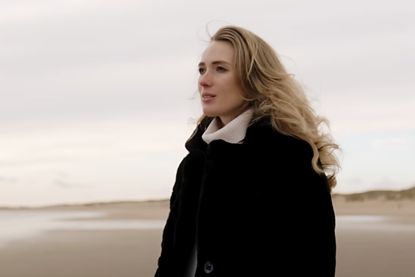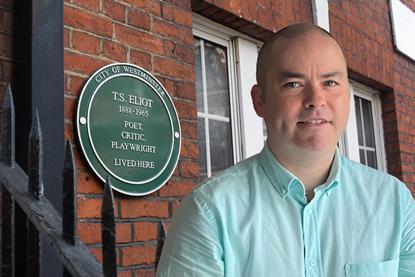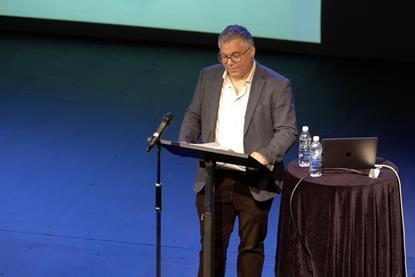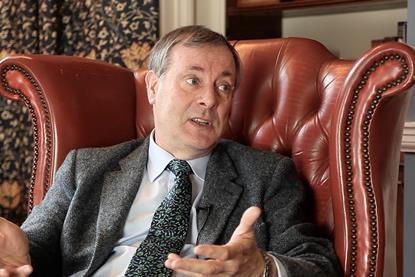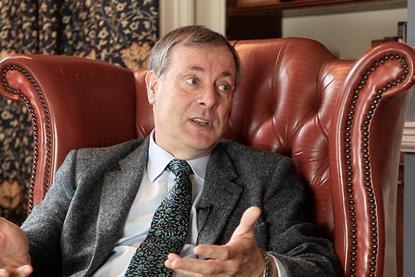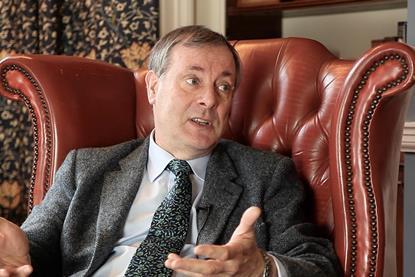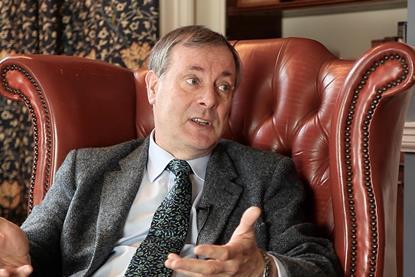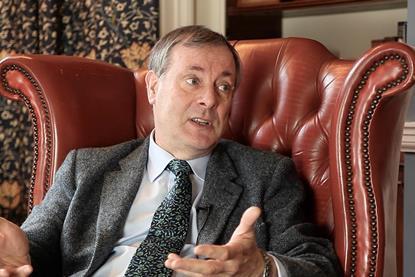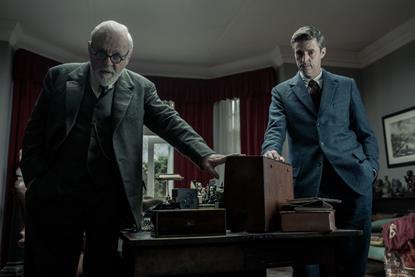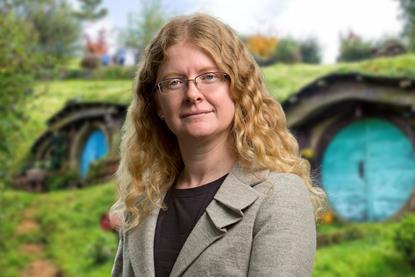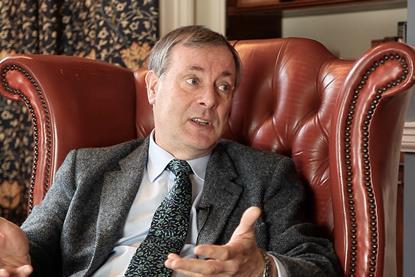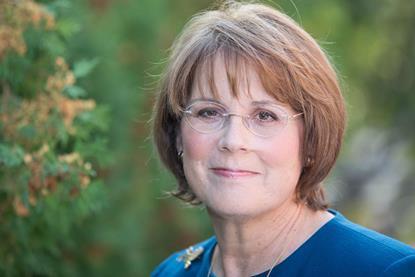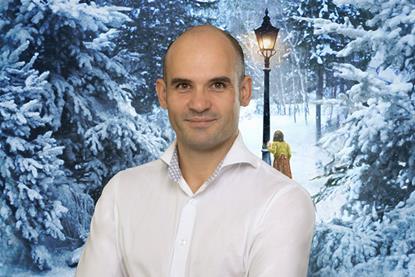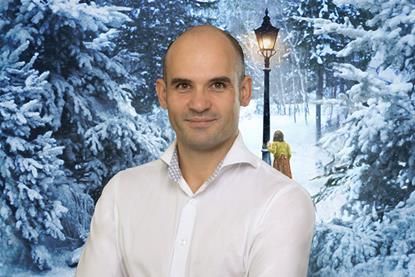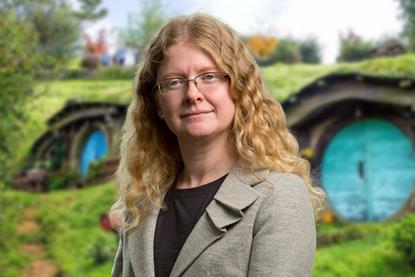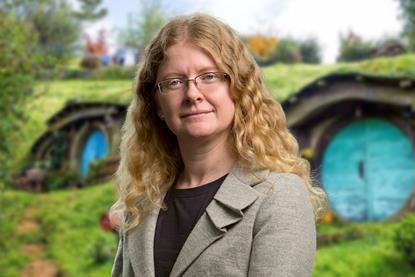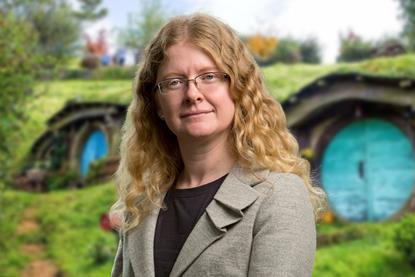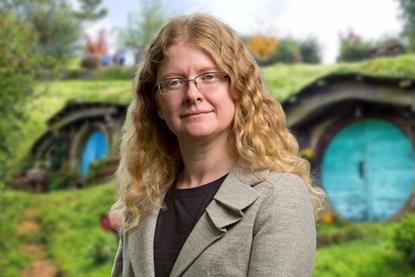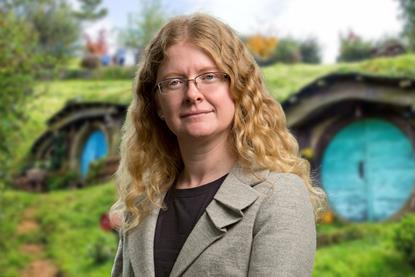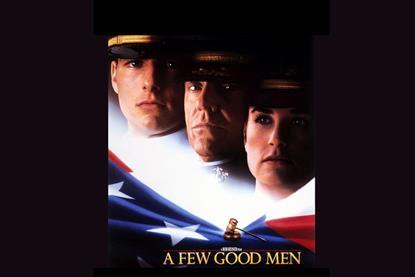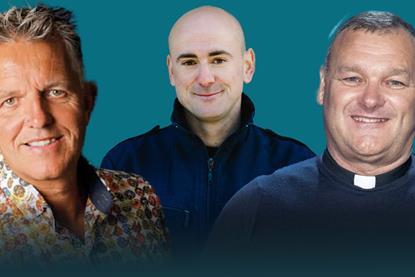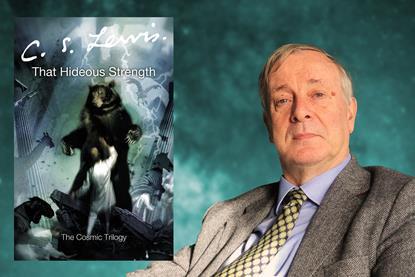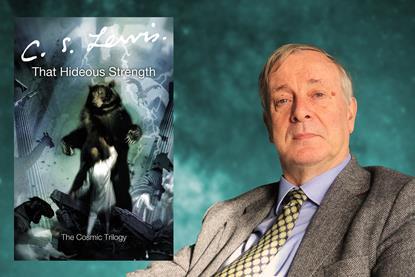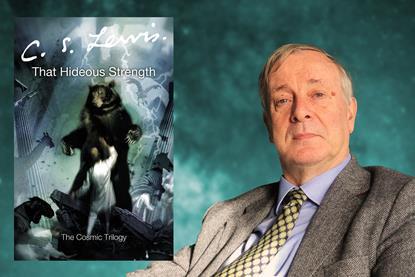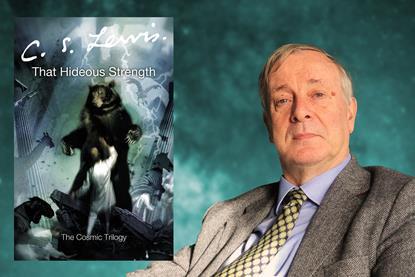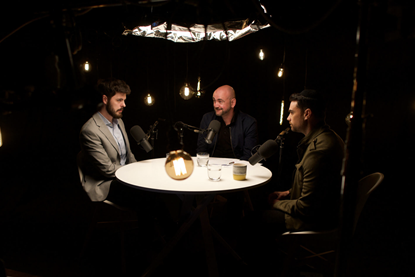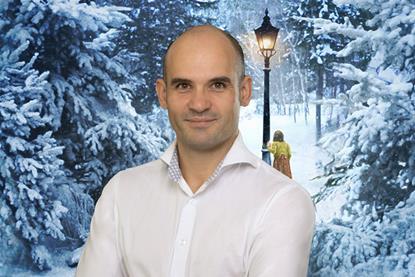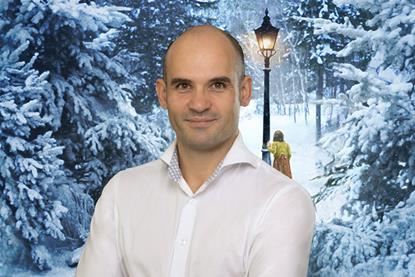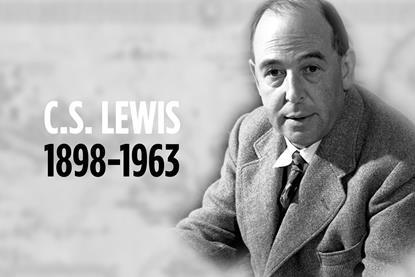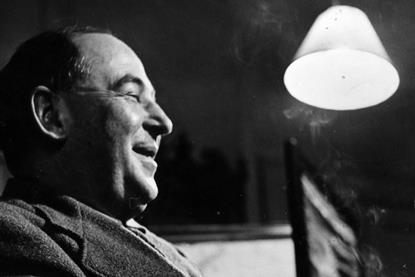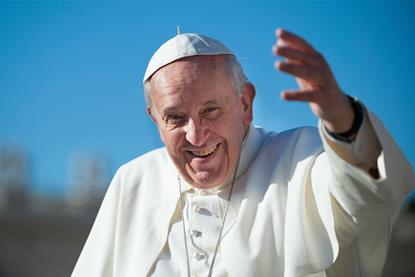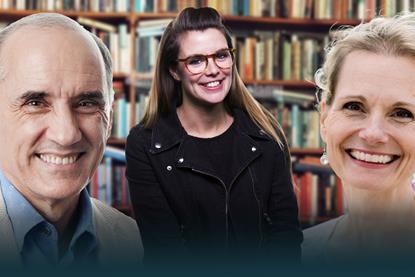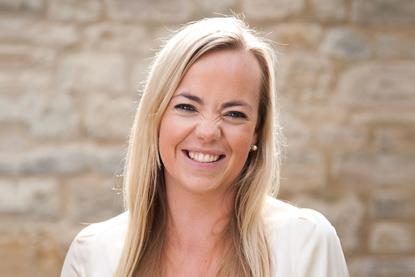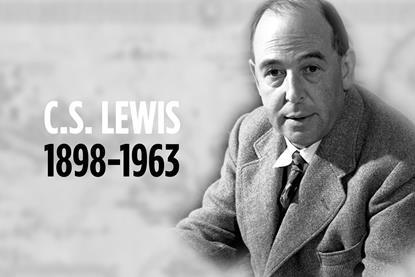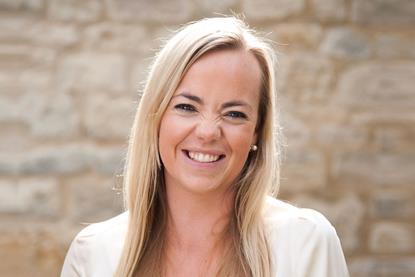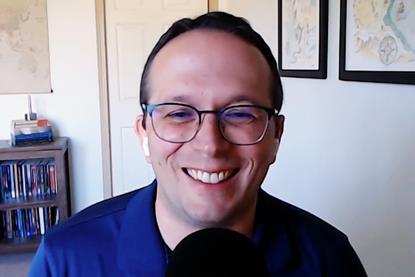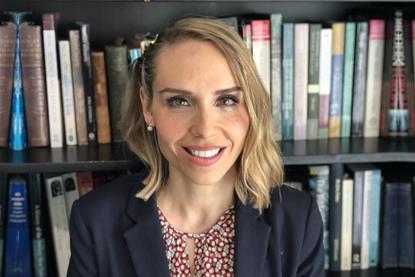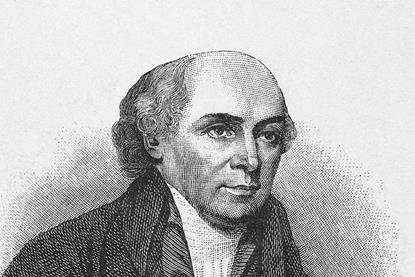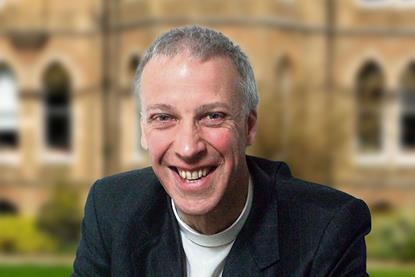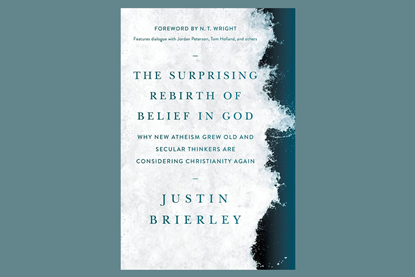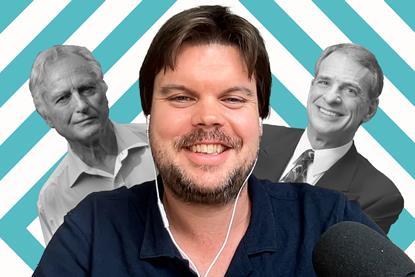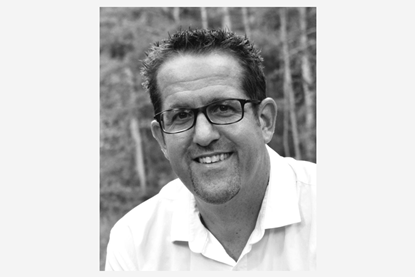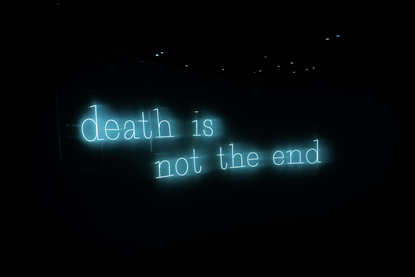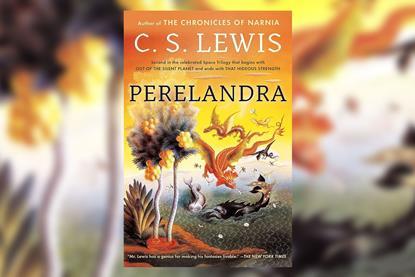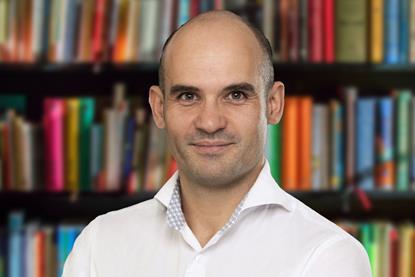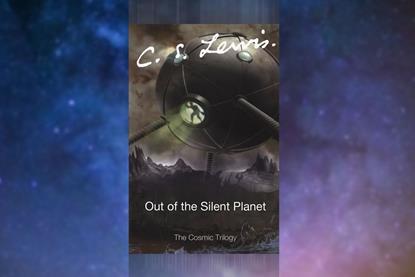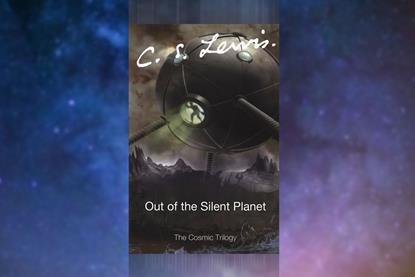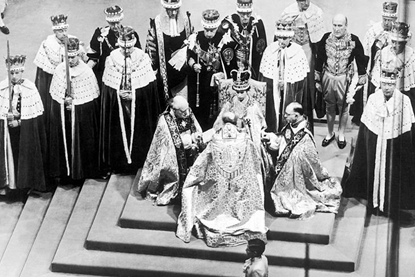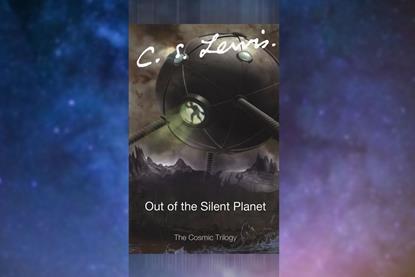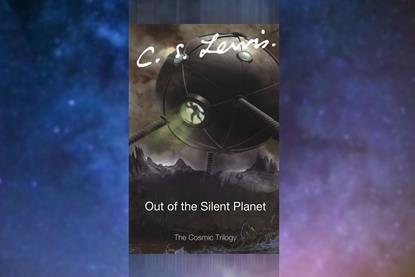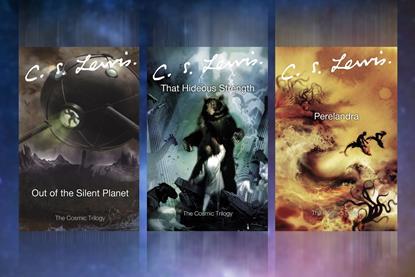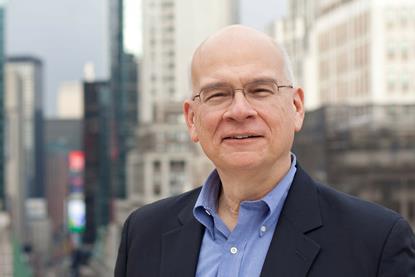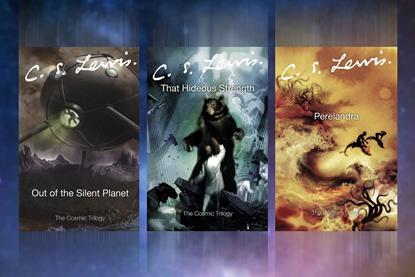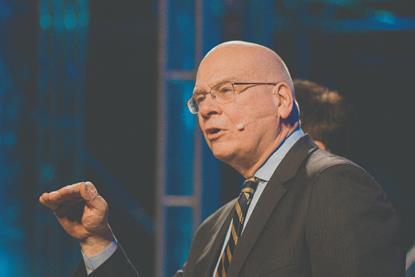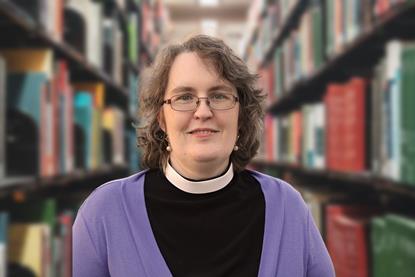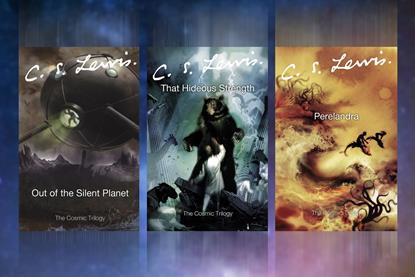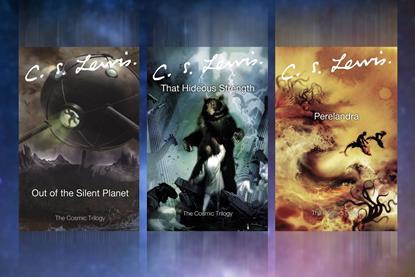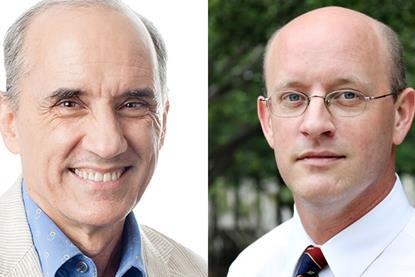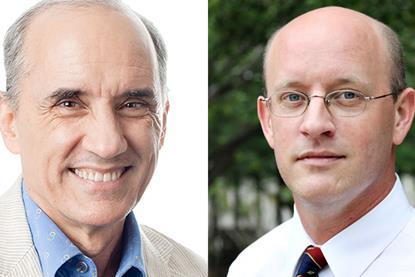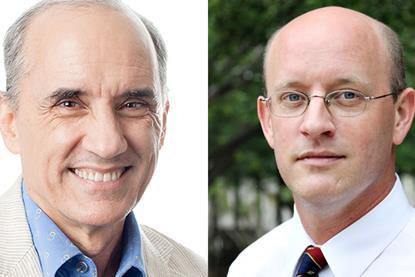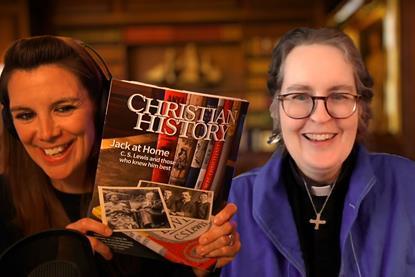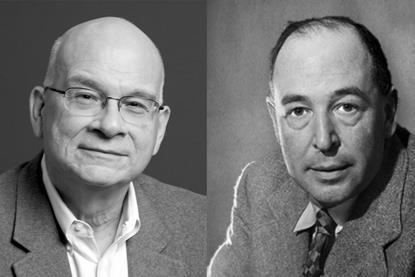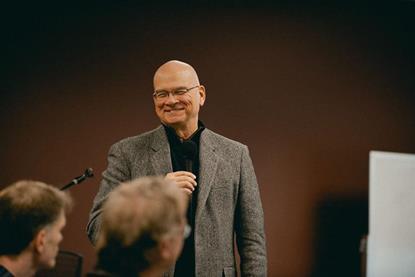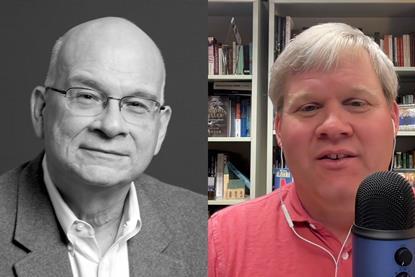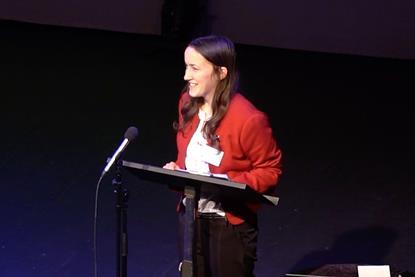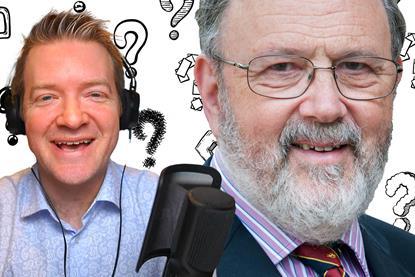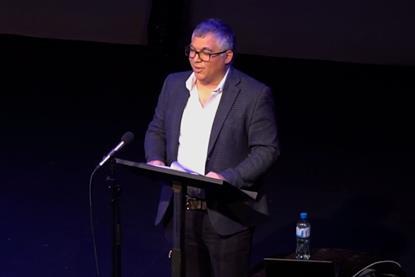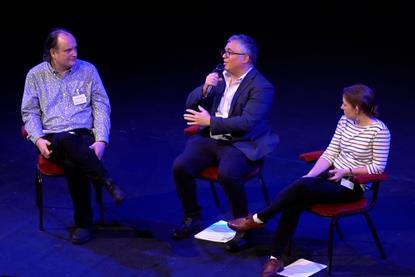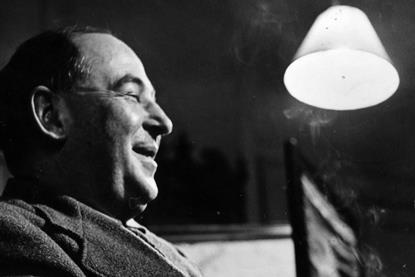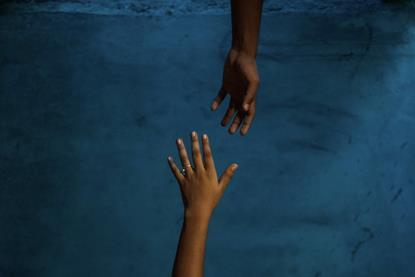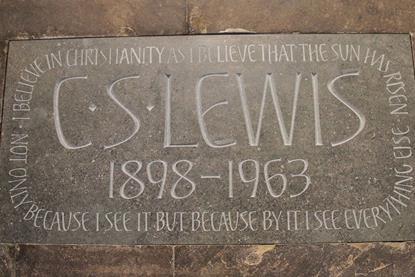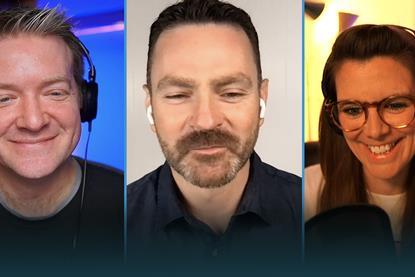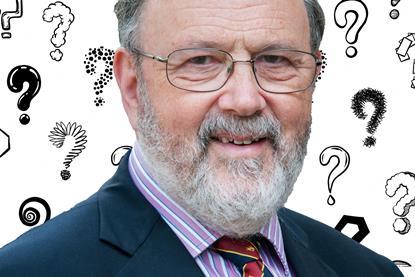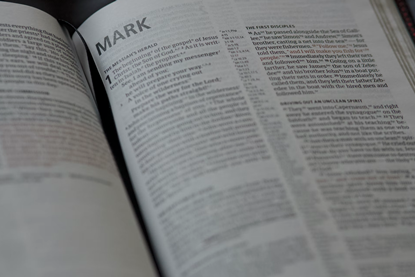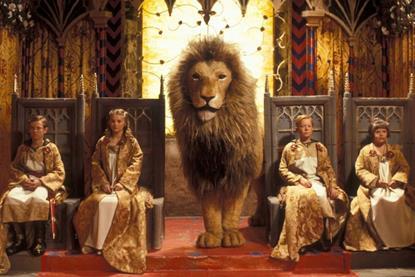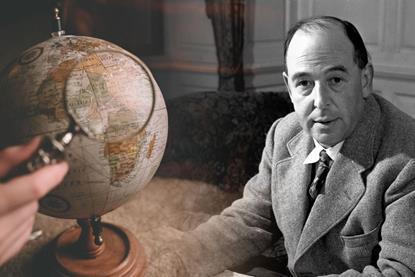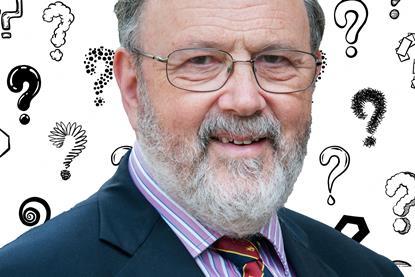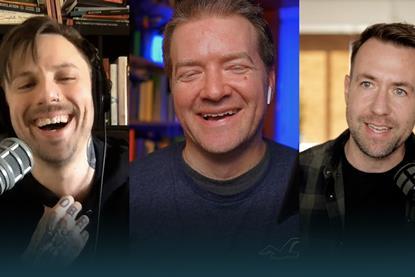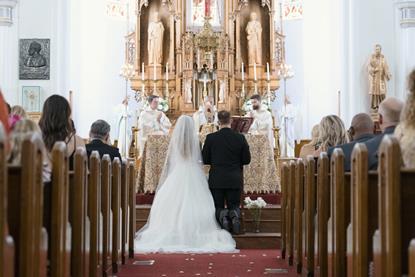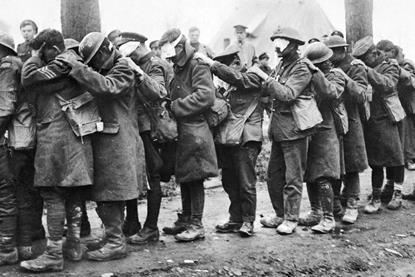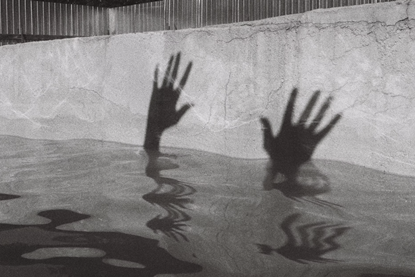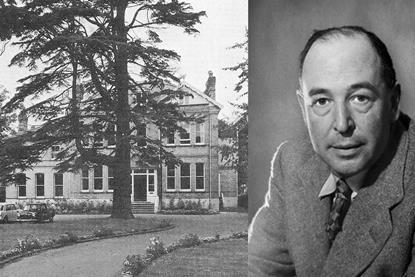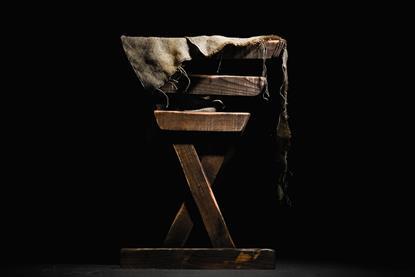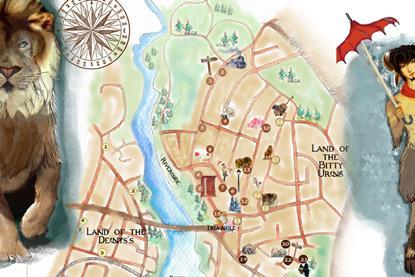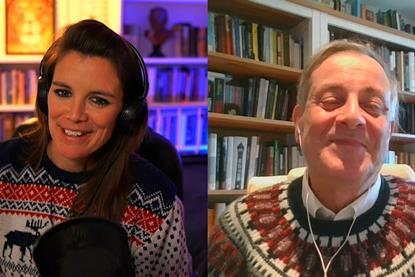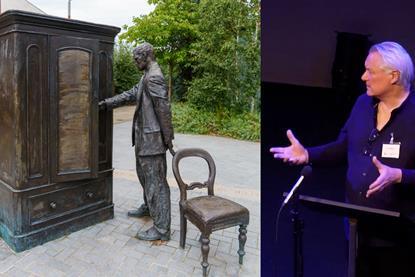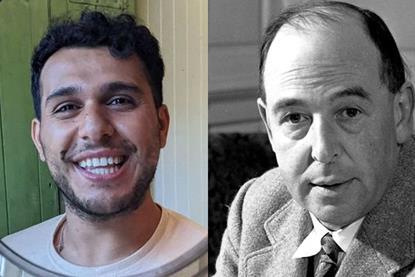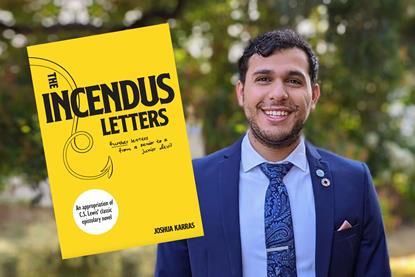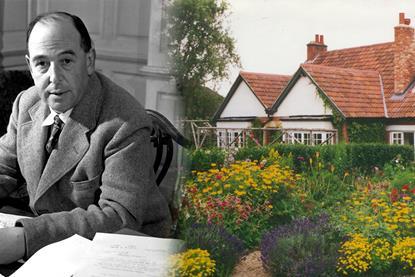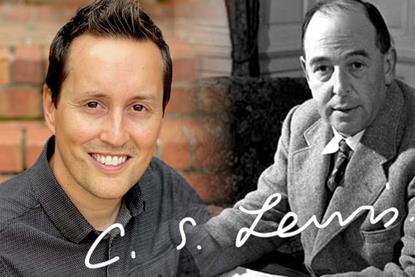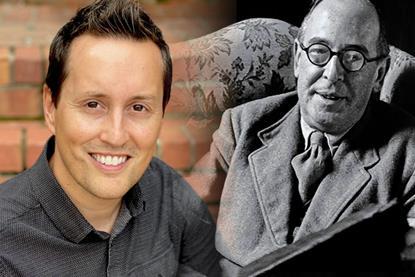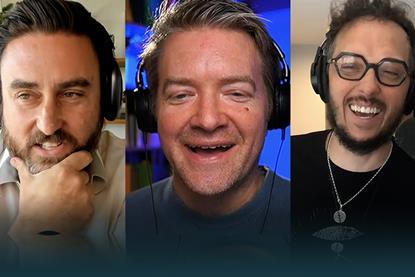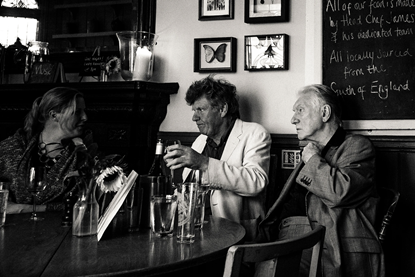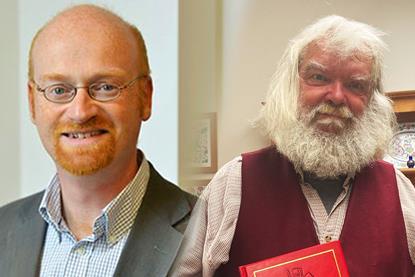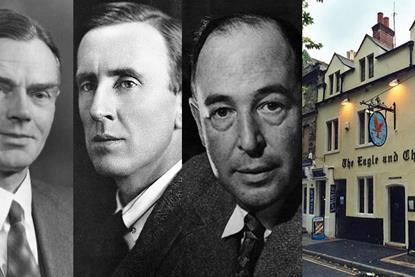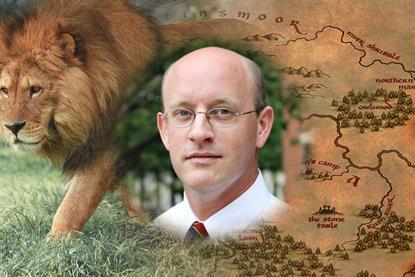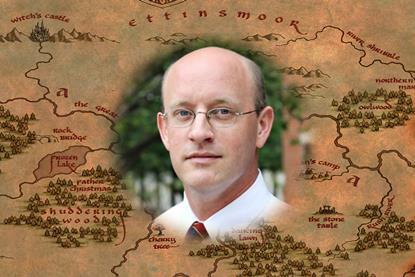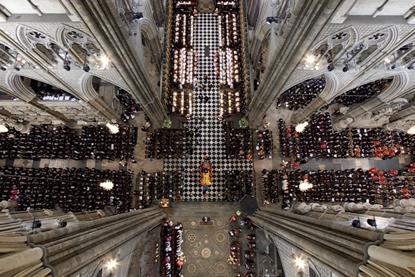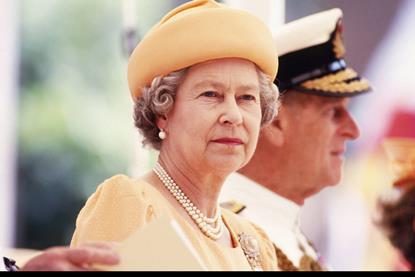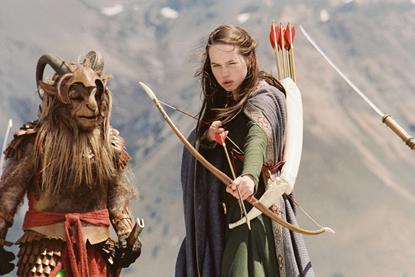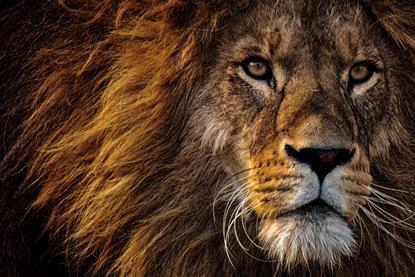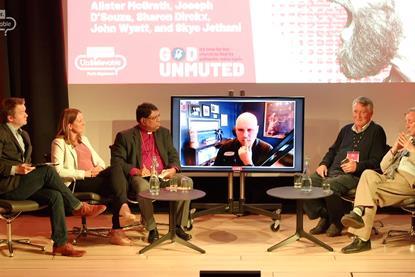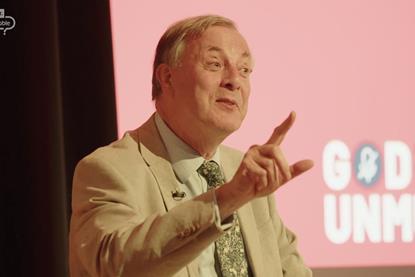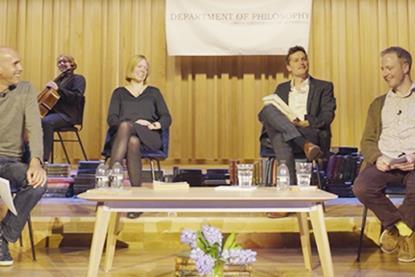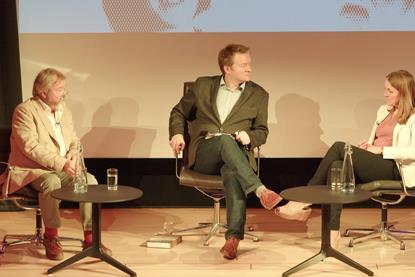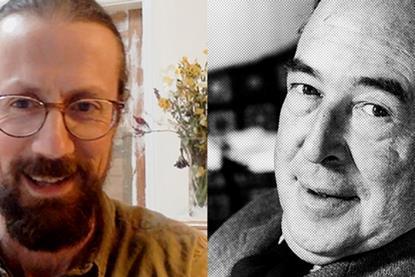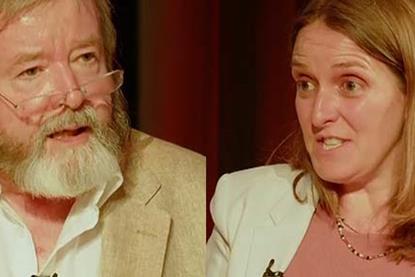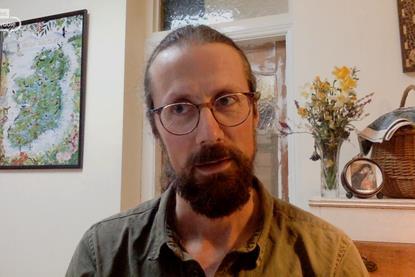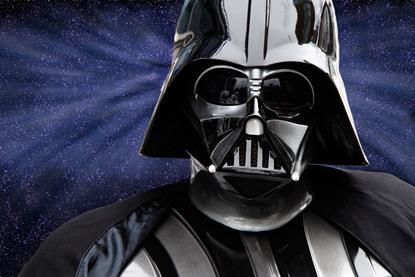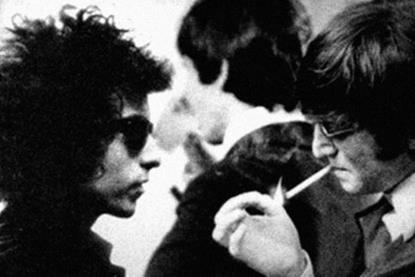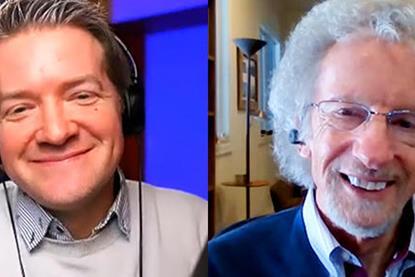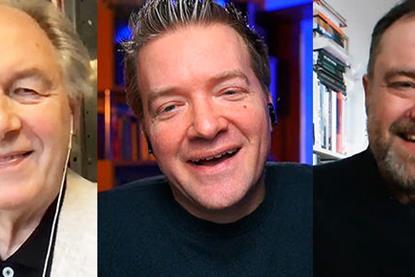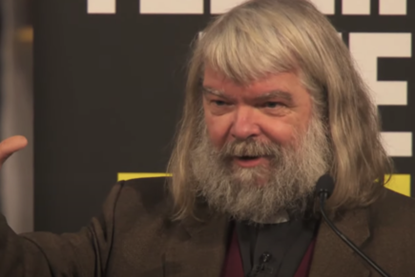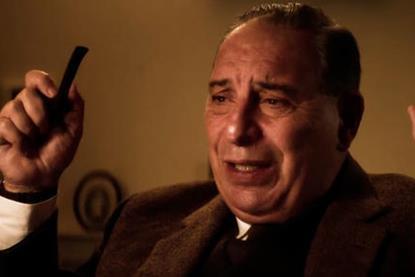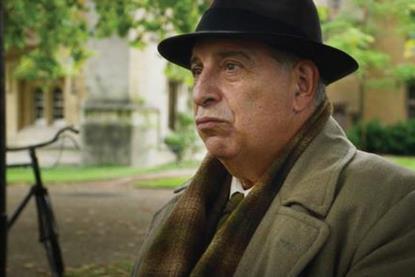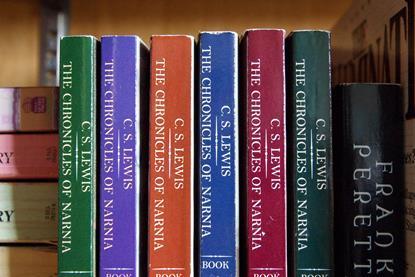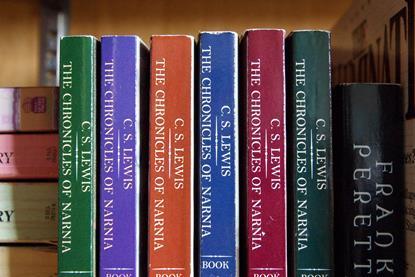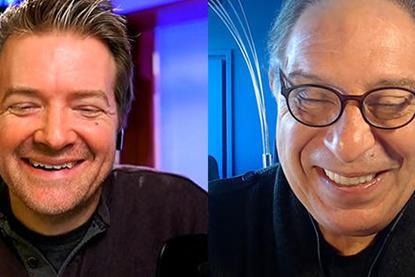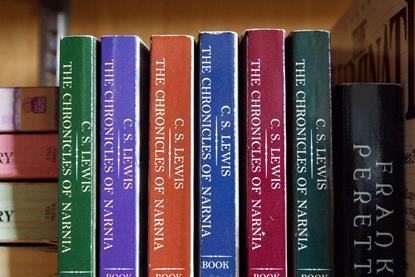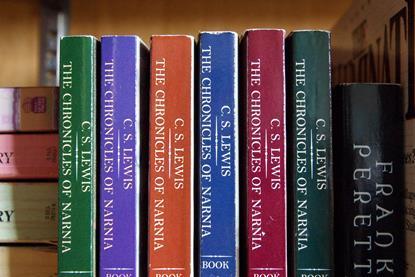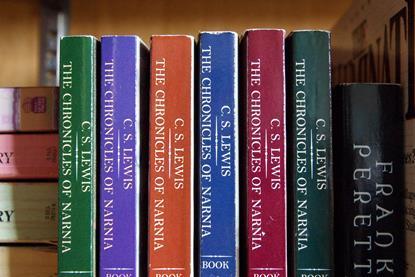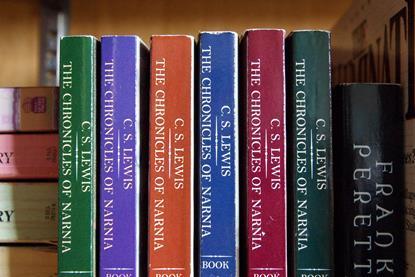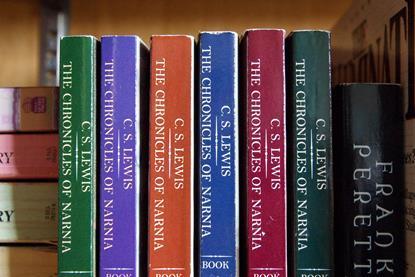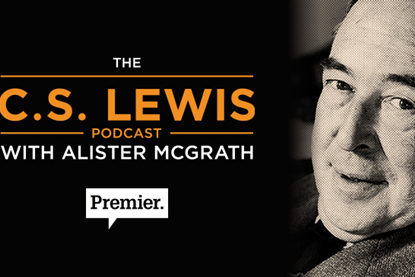Art & Imagination
Christian Apologist on Navigating the Fallout of Charlie Kirk’s Murder: Facts Care About Your Feelings After All
In the wake of Charlie Kirk’s killing, our nation confronts a familiar crisis: the temptation to dehumanise those with whom we disagree. Christian apologist Abdu Murray argues that the way forward requires integrating truth and compassion - recognising that facts and feelings are not enemies, but part of what it means to be fully human.
C.S. Lewis on Theology: A New Mini-Series with Alister McGrath presented by Ruth Jackson
What does it mean to take C.S. Lewis seriously as a theologian? In this new series of The C.S. Lewis Podcast, host Ruth Jackson and Professor Alister McGrath delve into Lewis’s theology - his defence of miracles, his understanding of Scripture, and his vision of faith that unites reason and imagination.
#230 Alister McGrath: Theology, miracles and imagination
In today’s episode, Ruth Jackson is joined again by Professor Alister McGrath, to discuss theology in a multi-part series. They explore Lewis’ view on miracles, his belief on the importance of imagination, and how Lewis’ arguments stand up against the New Atheism movement.
More Than a Love Story: Taylor Swift and the Burden We All Carry
Taylor Swift’s engagement to Travis Kelce is more than a celebrity love story - it’s a mirror for our own longings and the pressure to “have it all.” As Swift’s journey resonates with millions, this article explores the relentless burdens modern women face and the deeper freedom Jesus offers: not in perfection or applause, but in knowing we are already enough.
The CS Lewis Podcast #217 Traver Carlson: The Ransom Trilogy, Space and Medieval Imagery
Ruth Jackson is joined by Traver Carlson, a PHD candidate in Philosophy at the Institute for Christian Studies, to discuss his paper from the 2024 Undiscovered CS Lewis Conference, which focuses on The Ransom Trilogy.
Artificial Intelligence: The Beast We Build and the Words We Choose
As artificial intelligence advances at breakneck speed, are we creating a servant, a master—or something far more dangerous? Erik Strandness explores how our quest to “build a better beast” reveals both human ambition and folly, raising urgent questions about language, ethics, and the spiritual risks of playing God in the digital age.
The Problem of Pain: Why Every Worldview Must Answer the Question of Suffering
Atheists often use the problem of pain and suffering to challenge the existence of God, but this issue isn’t exclusive to Christianity. Every worldview must reckon with life’s harshest realities and not only confront suffering but also offer a meaningful response to it.
The CS Lewis Podcast #202 Alister McGrath: What did CS Lewis think of science? Part 1
In part 1 of our new series on science, Ruth Jackson is joined by Alister McGrath to explore how CS Lewis approached the relationship between science and religion.
The CS Lewis Podcast #200 Ruth Jackson: 200th Episode Special
Ruth Jackson shares some of her favourite moments from the podcast to celebrate the 200th episode. We will be revisiting conversations with Professor Alister McGrath discussing CS Lewis’ relevance and mental health, hearing stories on how Lewis helped bring people to faith, his correspondence with Kathy Keller, and his impact on the creative works of film director Matthew Brown and singer songwriter Sarah Hawkyard.
The CS Lewis Podcast #199 Michael Oppizzi: Why Till We Have Faces Still Speaks to Us Today
In this third and final episode with Michael Oppizzi, Ruth Jackson asks about his groundbreaking research on planetary symbolism in Till We Have Faces, CS Lewis’ final and often misunderstood novel. Michael shares insights from his paper, presented at the Undiscovered CS Lewis Conference, and his upcoming book project, revealing how planetary themes structure the novel’s vision of truth and divine encounter. Can Lewis’ work still teach us today about faith, myth, and the nature of human longing?
The CS Lewis Podcast #197 The Many Faces of CS Lewis: A Conversation with Michael Oppizzi
In this episode, host Ruth Jackson speaks with Michael Oppizzi, an educator and cultural apologist, about the enduring relevance of CS Lewis. They discuss Lewis’s impact on faith, imagination, and intellect, with a deep dive into Till We Have Faces, the role of letters in shaping thought, and the significance of cultural apologetics today.
The CS Lewis Podcast #196 How did Shakespeare influence Lewis’ exploration of death, resurrection and the human condition?
How did “great myths” shape Lewis’ understanding of Christian truth? Dr Sarah Waters, assistant professor of language and literature at Sterling College, Kansas, continues to explore the intriguing intersection between Shakespeare’s literary genius and CS Lewis’ spiritual journey.
The CS Lewis Podcast #195 Sarah Waters: Did Shakespeare play a role in Lewis’ conversion?
How did William Shakespeare influence CS Lewis’ conversion to Christianity? Dr Sarah Waters, assistant professor of language and literature at Sterling College, Kansas, draws connections between Lewis’ faith journey and his engagement with Shakespeare’s works.
The CS Lewis Podcast #194 Sarah Waters: How Lewis grew to love Shakespeare
What was Lewis’ favourite Shakespeare play? Dr Sarah Waters, assistant professor of language and literature at Sterling College, Kansas, delves into Lewis’ literary accessibility and theological insights, uncovering the timeless relevance of his work.
The CS Lewis Podcast #193 Leprechauns, fairies and the Holy Ghost
What did Warnie and Lewis get up to while holidaying in County Louth? How did he encounter leprechauns, fairies and the Holy Ghost? Plus, we hear about some of the key women in Lewis’ life: Mrs Moore, Joy and their housekeeper Vera Henry. Rev Paul Clayton-Lea, author of CS Lewis and the Wee County shares the second half of his talk given at the CS Lewis Group at Ulster’s spring mini symposium and answers audience questions.
Creating a sacred space: the yearning for tradition and aesthetics in the church
More traditional styles of worship are gaining popularity, in contrast with the modern norm of trendy pop-rock worship bands, minimalist décor and warehouse-style buildings. Erik Strandness reflects on his desire for awe, majesty and beauty when attending church
The CS Lewis Podcast #192 Warnie, alcoholism and Country Louth
Lewis’ life was not a bed of roses. However, he was still able to find joy in dark situations. For example, discovering beauty and friendship in Ireland’s Country Louth while his brother Warnie was being nursed there for alcohol addiction. Rev Paul Clayton-Lea, author of CS Lewis and the Wee County shares some fascinating personal stories from the Lewis brothers in a talk given at the CS Lewis Group at Ulster’s spring mini symposium.
The CS Lewis Podcast #191 New Atheism, Sigmund Freud and Narnia: Does CS Lewis still matter?
Is CS Lewis relevant today? Can he speak to a post-Christian culture? We hear from Meg Thomson, producer of Freud’s Last Session, a film starring Anthony Hopkins as Sigmund Freud and Matthew Goode as CS Lewis, Dr Jem Bloomfield, an assistant professor at the University of Nottingham and author of Paths in the Snow and Justin Brierley, author of The Surprising Rebirth of Belief in God.
The CS Lewis Podcast #190 Holly Ordway: Tolkien’s Father Christmas letters
For 23 years JRR Tolkien wrote to his four children as Father Christmas. Dr Holly Ordway, author of Tolkien’s Faith, explores Tolkien’s creative, humorous writing around Father Christmas and his companions, including his Polar bear assistant, snow-elves, the Man in the Moon and goblins!
The CS Lewis Podcast #189 Holly Ordway: What did Christmas mean to JRR Tolkien?
How integral was the incarnation for JRR Tolkien? Does Christmas feature in The Lord of the Rings legendarium? How did the Tolkien family celebrate Christmas? Dr Holly Ordway, author of Tolkien’s Faith, shares her thoughts on what Christmas meant to Tolkien and explores a recently discovered poem of his, Noel, which is one of his most overtly Christian works.
The CS Lewis Podcast #188 Jem Bloomfield: Christmas in Narnia
Dr Jem Bloomfield, assistant professor of literature at the University of Nottingham and author of Paths in the Snow, unpacks the Christmas references as well as key elements, such as the stone table and the titles of the Pevensie children, within The Lion, the Witch and the Wardrobe.
The CS Lewis Podcast #187 Jem Bloomfield: Paths in the snow
As Christmas approaches, we unpack some of the key elements in The Lion, the Witch and the Wardrobe with Dr Jem Bloomfield, assistant professor of literature at the University of Nottingham and author of Paths in the Snow.
The CS Lewis Podcast #184 Dan Barker and Carolyn Weber: Are Lewis’ arguments flawed?
In the second part of Dan Barker and Dr Carolyn Weber’s discussion about CS Lewis’ relevance, Dan points out some of the holes he perceives in Lewis’ beliefs. On the opposite side of the debate, Carolyn shares how she became a Christian, highlighting elements of her story that echo Lewis’ own and looking at how Lewis’ writing greatly influenced her decision.
The Divine Debate: Is Morality Rooted in God? Atheist Stephen Law vs Matthew Su hosted by Ruth Jackson
Is faith necessary for a moral life? Is belief in God essential for a meaningful moral framework, or can secular philosophy provide all the answers? This week on Unbelievable?, host Ruth Jackson welcomes two dynamic thinkers to explore the profound debate of God’s role in our moral universe.
The CS Lewis Podcast #182 Sarah Hawkyard: CS Lewis changed everything
Ruth Jackson spoke to singer-songwriter Sarah Hawkyard who describes Mere Christianity as a “game changer”, which “hooked” her onto Christianity. Lewis played an integral role in Sarah coming to faith, challenging, inspiring and providing her with profound knowledge.
The CS Lewis Podcast #181 Curtis White: What did TS Eliot and Lewis think of each other?
Dr Curtis White’s PhD focuses on the relationship, work and theology of CS Lewis and TS Eliot. Here, he highlights some of his thoughts on this topic as well as sharing how Lewis was integral to his own faith journey. White also talks about the upcoming CS Lewis Symposium in Belfast, which John Brown University is providing financial support for.
The CS Lewis Podcast #180 David Clare: Ecstatic experience
How did Lewis approach ecstatic experiences, particularly in light of his Ulster Protestant background? Dr David Clare of Mary Immaculate College, University of Limerick continues his talk given at the C.S. Lewis Group at Ulster’s spring mini symposium. He also answers questions from the live audience. The event was entitled ‘C.S. Lewis and the Land of His Birth: Re-rooting Lewis in Ulster & the Island of Ireland’. The title of Dr Clare’s talk was ‘“Lit Up Inside”: C.S. Lewis’s Joy & Ulster Protestant Ecstasy’.
The CS Lewis Podcast #176 Alister McGrath: Feelings, desire and religious experience
Why are we often hesitant to talk about our feelings? What did Lewis mean by “joy” and how did he search for it? Can our feelings help us to find God or to grow in our faith? How did Lewis view aesthetics? What should we do when our feelings seem opposed to our faith? How important was religious experience for Lewis? Professor Alister McGrath continues to explore how we can use Lewis as a resource for the Christian life.
The CS Lewis Podcast #174 Alister McGrath: Can Lewis help us to find meaning?
What did Lewis mean by “big pictures” and how did he use them in his work? How can he help those struggling to find their purpose in life? Why are people so concerned about a lack of coherence and can Lewis be of assistance? Can creeds help us? Professor Alister McGrath explores how Lewis can be a pathfinder and a resource for the Christian life.
The CS Lewis Podcast #173 Alister McGrath: How do we tell good stories?
How can our individual stories find new meaning and significance from Christianity’s “grand story”? In what ways did Lewis tell the Christian story? And what can we learn from this? How do we share our own story? Professor Alister McGrath explores how we can use Lewis as a resource for our Christian life and looks at some of Lewis’ favourite stories, including The Pilgrim’s Regress.
The CS Lewis Podcast #172 Alister McGrath: Why do stories matter?
Which stories impacted Lewis as a young child? Why is story so important? How does imagination help convey truth? What did Lewis mean by “myth” and how did that impact his thinking? Where did JRR Tolkien help with this? How do we allow the Christian story to shape our own? Professor Alister McGrath explores how we can use Lewis as a resource for our Christian life.
The CS Lewis Podcast #171 Alister McGrath: Spiritual disciplines, young people and the academy
Professor Alister McGrath continues to explore how we can use CS Lewis as a resource for our Christian life. How did Lewis’ conversion change his life? What habits did he put in place to establish a rhythm of life for his faith? In what ways does Lewis speak to Christian academics? What inspiration can writers draw from Lewis? Does he offer any advice for young people living out their Christian faith today?
The CS Lewis Podcast #163 Matthew Brown: What would Sigmund Freud and CS Lewis discuss?
Hollywood director Matthew Brown, who directed and co-wrote Freud’s Last Session, shares his thoughts on two of the greatest minds of the 20th Century.
Women in apologetics – Not God’s type
Holly Ordway’s move from atheism to Christianity is reminiscent of CS Lewis’ conversion. Here, apologist Joel Furches tells her story and explores why she believes women play a crucial role in apologetics
The CS Lewis Podcast #161 Alister McGrath: Your questions answered
Professor Alister McGrath joined Ruth Jackson for a webinar answering live questions about CS Lewis, including how Lewis used modern media, whether there is a “modern day Lewis” and how we navigate some of the potentially racist terms within his work.
The CS Lewis Podcast #157 Kathy Keller: One of the last people to correspond with Lewis before his death
As we approach the one year anniversary of apologist Tim Keller’s death on May 19th, we caught up with his wife Kathy Keller who corresponded with CS Lewis as a child. Why did she write to Lewis? How did he respond? What are some of the stories he shared with her? What was it like meeting Warnie Lewis? Plus, we hear the impact of CS Lewis and JRR Tolkien on Tim and Kathy and we hear whether they really did speak Elvish together at home.
The CS Lewis Podcast #156 Phil Knox: Lord All matey or Lord Almighty?
Did Jesus have favourites? What does good friendship look like? Can we can call God friend? Why does Lewis consider friendship “the most spiritual of loves”? Is Christian frienship greater than non-Christian friendship? Phil Knox, author of The Best of Friends concludes his conversation on Lewis and friendship.
The CS Lewis Podcast #155 Phil Knox: Are we allowed favourite friends?
Phil Knox, author of The Best of Friends, explores what Lewis said about friendship. Why have we neglected friendship? What lessons can we learn from Lewis? Should we treat all friends equally?
The CS Lewis Podcast #154 Lewis and Tolkien: The final years
What were the significant points of contention between CS Lewis and JRR Tolkien? Where did they differ on theology? How did they respond to each other’s fame? What did Tolkien think of The Narnia Chronicles? Why was Lewis’ Letters To Malcolm so “horrifying” to Tolkien? Did these two Inklings fall out at the end of Lewis’ life?
Eclipsing God: Why were we so taken by this natural phenomenon?
In light of the recent eclipse, neonatal consultant Erik Strandness reflects on why rare cosmological events catch the attention of the world
The CS Lewis Podcast #153 The poet and the philologist: Lewis and Tolkien's early years
Dr Holly Ordway, author of Tolkien’s Faith explores what Lewis and Tolkien thought of each other when they first met. How did their friendship blossom? Why was their conversation in Addison’s Walk so significant to Lewis’ journey back to Christianity? What influence did the two men have on each other?
The CS Lewis Podcast #152 Is ‘The Lord of the Rings’ a religious work?
Dr Holly Ordway, author of Tolkien’s Faith explores what JRR Tolkien meant when he described The Lord of the Rings as a “fundamentally religious and Catholic work”. Do we see any elements of his faith in the book? Is it possible to discern a theology? Are there any characters Tolkien identified with? Plus, how does Leaf by Niggle relate to Tolkien’s magnum opus?
The CS Lewis Podcast #151 Holly Ordway: Trauma, Catholicism and romantic love
Dr Holly Ordway, author of Tolkien’s Faith, shares some of the traumatic events in JRR Tolkien’s life, such as the death of his parents during his childhood, his forbidden romantic love and his experience of the Great War. What would it have been like to convert to Catholicism? How did his guardian Fr Francis impact Tolkien’s faith?
The CS Lewis Podcast #149 Holly Ordway: Tolkien’s faith
Ahead of Tolkien Reading Day on 25th March, Dr Holly Ordway, author of Tolkien’s Faith, shares her thoughts about Tolkien’s Catholic faith. She explores the relevance of his work, looking at whether it will stand the test of time.
Jack Nicholson got it wrong: We can’t even believe in truth, let alone handle the truth
Author Drew Cordell explores the nature of truth through the lens of a 90s classic movie
Unbelievable? Where is God to be found when you are told your cancer is terminal? Steve Legg, Allan Finnegan and Andy Kind
Where is God to be found when facing the no-joke reality of a terminal diagnosis for cancer? Two comedians, who are both Christians, are facing just this challenge. This discussion between Steve Legg and Allan Finnegan hosted by Andy Kind will transform the way you think about terminal illness. This uplifting show explores why two men in the prime of life feel closer to God than before they received their devastating diagnoses.
The CS Lewis Podcast #146 That Hideous Strength: How do we resist evil?
In this final episode on The Space Trilogy, Alister McGrath finishes his discussion on That Hideous Strength, looking particularly at how evil emerges and how we stop technology, such as AI and nuclear weapons, getting out of control.
The CS Lewis Podcast #145 That Hideous Strength: Was Lewis sexist?
Alister McGrath looks at what Lewis thought of women, sexuality and marriage. Are any of the characters in That Hideous Strength based on people Lewis knew? What was he trying to convey through their depiction?
The CS Lewis Podcast #144 That Hideous Strength: What would a godless world look like?
Alister McGrath continues to discuss the final book of CS Lewis’ science fiction trilogy. What are Lewis’ thoughts on education? Was he anti-modern? Does the abolition of God necessarily lead to the abolition of humanity?
The CS Lewis Podcast #142 That Hideous Strength: What is the future of humanity?
Alister McGrath continues to dive into some of the key themes in the final book of CS Lewis’ science fiction trilogy. What will happen to the human race? How can we change our future? What is the point of scientific experimentation? Alister also looks at how Lewis engages with HG Wells.
The CS Lewis Podcast #140 Sarah Irving-Stonebraker: Does history matter?
Associate Professor Sarah Irving-Stonebraker shares how significant CS Lewis was in her journey from atheism to Christianity. As an academic historian, she explores how great books speak to ever-present questions and looks at why the past matters. Why is Lewis still relevant 60 years after his death?
Why Christianity could trend in 2024
As we embark on a new year, author Drew Cordell reflects on the relevance of God in Western society
Is religion beneficial? The Alex O’Connor and Ben Shapiro debate
Journalist Heather Tomlinson reflects on a recent Big Conversation between Alex O’Connor and Ben Shapiro and ponders if the question of whether religion is beneficial leads to whether it is true
The CS Lewis Podcast #139 Phil Knox: The fate of the unevangelised
In the second part of his discussion about why The Narnia Chronicles make him cry, evangelist Phil Knox looks at why Prince Caspian contains one of the best definitions of evangelism.
The CS Lewis Podcast #138 Phil Knox: Why the Narnia Chronicles make me cry
”Daddy, why are you crying? It’s only a lion!” Evangelist Phil Knox shares his experience of reading The Narnia Chronicles with his young son and the impact these books have had on his own life. Why is The Lion, the Witch and the Wardrobe significant for so many people? And how does The Horse and his Boy depict the Christian story so profoundly?
Is Christmas relevant for everyone?
Author Ben Harris shares some thoughts on how to bring the Christmas story to life this Christmas
Is it time for Christians to ditch Christmas?
Author Drew Cordell ponders what it might mean for those who believe “Jesus is the reason for the season” to abandon 25th December all together
The CS Lewis Podcast #136 David Bates: Was Lewis a bit of a grumpy old man when it came to Christmas?
What did CS Lewis say about Christmas? David Bates from Pints With Jack discusses some of Lewis’ poetry and prose on this topic. What did he mean by the “commercial racket” of Christmas? How does he depict the incarnation? And what is the significance of Father Christmas in the Narnia Chronicles?
The CS Lewis Podcast #135 David Bates: What did Christmas mean to Lewis?
David Bates from Pints With Jack shares some of CS Lewis’ thoughts about Christmas. What are some of his key works that elucidate this topic? Did the festive period lose its significance when Lewis became an atheist? Plus, we catch up on how the inaugural CS Lewis Reading Day went last month.
The CS Lewis Podcast #133 Alister McGrath: Was Lewis a prophet and does he speak to contemporary cultural issues?
Professor Alister McGrath and Ruth Jackson continue their discussion about whether CS Lewis is still relevant. Was he something of a prophet? What can we learn about the way Lewis engaged with modern media? How did he make complicated theological concepts relatable? In what ways has Lewis influenced our culture and is he able to speak to contemporary topical issues, such as transgenderism?
The inaugural CS Lewis Reading Day: Why should Tolkien geeks have all the fun?
CS Lewis podcaster, David Bates, shares why he helped initiate a campaign to commemorate Lewis with an annual Reading Day on November 29th
Pope Francis on why we need hope
The Pope shares his thoughts on how we can be people of hope in a world that desperately needs it
Unbelievable? 60 years after his death, are CS Lewis and his God still relevant?
Ruth Jackson hosts a discussion about a 20th Century British writer and lay theologian who is arguably one of the most influential voices in modern Christianity. On November 22nd 1963, Clive Staples Lewis – Jack to his friends – died in Oxford, England. However, 60 years after his death, is CS Lewis still relevant?
Unapologetic #79 Amy Orr-Ewing: Is there any evidence for a virgin birth?
In the final part of their discussion, Dr Amy Orr-Ewing discusses whether we can believe in a virgin birth, why this birth is significant and how we can trust the witness of Mary. Plus, why is justice important to the Christmas story? And, how can Jesus be both fully God and fully man?
The CS Lewis Podcast #132 Alister McGrath: 60 years after his death, does Lewis still speak to our heads and hearts?
On November 22nd 1963, Clive Staples Lewis – Jack to his friends – died in Oxford, England. 60 years after his death, we discuss whether he is still relevant today. Are any of the accusations levelled against Lewis legitimate? Why does he continue to speak to our rationality and imagination? Plus, Professor Alister McGrath shares the influence Lewis had on his own journey of faith.
Sex, sexuality and the purity culture: What would Jesus deconstruct (WWJD)?
Preston Ulmer, author of Deconstruct Faith, Discover Jesus: How Questioning Your Religion Can Lead You to a Healthy and Holy God, shares his thoughts on how our stance on sex may have caused people to lose their faith
Unapologetic #78 Amy Orr-Ewing: Why are women central to the Christian story?
Dr Amy Orr-Ewing, author of Mary’s Voice, explores the context of Mary, mother of Jesus, and looks at why women play such a significant role in Christianity. Plus, what is the Magnificat, why is it so revolutionary? And how is it relevant today?
The CS Lewis Podcast #131 David Bates: CS Lewis Reading Day
David Bates and his team at Pints With Jack have helped establish a day to celebrate CS Lewis and his work. His fellow Inkling, JRR Tolkien, already has a special reading day, but “why should the Tolkien nerds have all the fun?”! Listen in to hear why David thinks Lewis is still relevant today and how you can get involved with the inaugural CS Lewis Reading Day on Lewis’ birthday - November 29th.
Unapologetic #76 Sarah Irving-Stonebraker: How do we find meaning?
In the second part of their discussion, Sarah Irving-Stonebraker shares how she moved from atheism to agnosticism, ending up in a church. What is meaning? How do we find it? Does Christianity have anything to say to our cultural moment?
Cobbler turned missionary: How William Carey brought hope to the hopeless
Author Mark Roques explores the life of Baptist preacher William Carey
Unapologetic #74 Michael Lloyd: Should we all study theology?
Rev Dr Michael Lloyd, author of Cafe Theology, shares his story including why he got ordained, how he ended up in academia and why he changed his mind on the ordination of women. He also discusses how to assess the veracity of doctrines and why he believes everyone should study theology.
Is there a rebirth of belief in God?
Erik Strandness reviews Justin Brierley’s new book
Unapologetic #73 Peter Byrom: Dawkins’ argument from complexity
In the final part of their discussion, Peter Byrom delves into Dawkins’ argument from complexity, suggesting it may be a circular assumption. They unpack Dawkins’ fascinating exchange with Francis Collins in 2022, where Dawkins admits he may have a presupposition towards materialism. Plus, what does the future hold?
Discovering purpose: An engineer's evolution from atheism to a life filled with meaning
Apologist Jana Harmon shares the story of Neil Placer, who discovered the Christian faith via years of atheism
Bennu the asteroid: Why does the Universe exist and why should we care?
Nasa’s Osiris-Rex returned from a seven-year mission with asteroid Bennu’s dust, aiming to shed light on the Universe’s formation. Erik Strandness examines the project’s theological and philosophical impacts.
Are humans better than animals?
Apologist Nathan Rittenhouse shares his thoughts on Psalm 8 and its ramifications
What can we learn from near-death experiences?
Journalist Heather Tomlinson continues her exploration on near-death experiences in light of a recent Big Conversation on this topic
The CS Lewis Podcast #124 Perelandra: Scientism, spirituality and magic
Professor Alister McGrath explores the second book of CS Lewis’ space trilogy, Perelandra, looking at some of its key themes, characters and questions. Could the Fall have been prevented? What if it hadn’t happened? How did Lewis perceive magic? Where do we find meaning? Is there a limit to science?
Unapologetic #70 Phil Knox: Dealing with objections
Why do many people deem religion irrelevant? What are some of the biggest objections to belief in God? Why are droves of young people leaving the Church? Evangelist Phil Knox shares some of his thoughts about these big topics and gives some tips on how to share your faith effectively.
The CS Lewis Podcast #123 Out of the Silent Planet: Death, suffering and The Fall
In the final episode on Out of the Silent Planet, Alister McGrath explores Lewis’ depiction of humanity, death, evolution and suffering. He also discusses the framework Lewis provides to help us reflect on these big questions.
Is the presence of God merely an illusion? A scientist investigates
Ken Miles, clinical academic and author of From Billiard Balls to Bishops: A Scientist’s Introduction to Christian Worship, explores whether we can feel the presence of God in an age of science
Will AI replace us?
Author Darren Richards reflects on artificial intelligence, looking at the value of human leaders
The CS Lewis Podcast #122 Out of the Silent Planet: Love, sex and intuition
Alister McGrath continues to explore Out of the Silent Planet, looking at some of CS Lewis’ language around love and sex. He also looks at the different life forms on Malacandra and the distinction between rational and non-rational life forms.
The late Queen (1926-2022): Reflections from a bishop a year after her death
Retired bishop Richard Harries shares his thoughts about Queen Elizabeth II, who died a year ago on 8th September 2022
What is Buddhism and how does it differ from Christianity?
Apologist Joel Furches explores the central beliefs of this popular Eastern religion, and compares it to Hinduism and Christianity
The CS Lewis Podcast #121 Out of the Silent Planet: Nakedness, science and Ransom
Looking at Out of the Silent Planet, Professor Alister McGrath discusses whether nakedness within the book is significant. Plus, they look at whether CS Lewis is drawing on genuine science and the significance of Ransom’s name.
Do near death experiences contradict Christian belief and doctrine?
Journalist Heather Tomlinson explores near death experiences and theology in light of a recent Big Conversation on this topic
The CS Lewis Podcast #120 Out of the Silent Planet: Weston, Devine and JRR Tolkien
As we delve into the first book of the trilogy, Out of the Silent Planet, Professor Alister McGrath looks at some of its key themes. He explores the characters of Weston and Devine, looking at whether they represent particular ideologies and how Lewis exposes issues with their worldviews. Plus, why was JRR Tolkien such a fan of the book?
What is a near-death experience and what can it teach us?
Following a recent Big Conversation, journalist Heather Tomlinson explores near-death experiences
The CS Lewis Podcast #119 Has The Space Trilogy stood the test of time?
Alister McGrath concludes his introduction to Lewis’ Space Trilogy by exploring parallels with The Chronicles of Narnia. He offers tips for getting into these three books, speculates why they haven’t been turned into films and shares his favourite moment in the trilogy.
Remembering Tim Keller: Death has lost its sting
Entrepreneur Max Anderson shares his final reflections on the great Tim Keller who influenced his life in a deeply profound way
The CS Lewis Podcast #118 Evil, evolution and theological reflection in The Space Trilogy
Alister McGrath explores some of the theological themes within Lewis’ trilogy, such as incarnation, atonement and the problem of evil. How did Lewis view the relationship between science and religion? What did he think about evolution? How did he critique certain worldviews through his fiction?
Remembering Tim Keller: Religious people may be just as lost as the irreligious (maybe more)
Entrepreneur Max Anderson reflects on his New York pastor and friend’s teaching on the Prodigal Son
Remembering Tim Keller
Entrepreneur Max Anderson reflects on the many things he’s learnt from his New York pastor and friend
Unapologetic #64 Ana Ávila: Has science disproved religion?
Ruth Jackson continues her conversation with Mexican writer Ana Ávila who studied clinical biochemistry. Why is there a perceived conflict between science and religion? Does science contradict the Bible? Can you prove there is a God?
Are we more than just our brains?
Following a recent Big Conversation, Dr Erik Strandness explores the relationship between the brain and mind, near death experiences, the existence of the soul and the perceived conflict between religion and science
Christians in science: How a military meteorologist became a theologian
Charles Clough is a retired military meteorologist who became a Christian while at MIT. Apologist Joel Furches spoke to him about being a scientist and a theologian
Unapologetic #63 Ana Ávila: Faith, questions and apologetics in Latin America
Mexican writer Ana Ávila, who lives in Guatemala, shares her insights into religion in Latin America. How do we probe our beliefs? What does evangelism look like in a nominally Christian culture? How is apologetics received in some of these countries and what are the big questions being asked?
What Daleks can teach us about truth
Linguist and author of Dalek Christianity Tom Schwarz explores what factors influence our perception of truth. He also looks at how we can celebrate different perspectives
Unapologetic #62 Dr Jennifer Woodruff Tait: Does Christian history matter?
Dr Jennifer Woodruff Tait, managing editor of Christian History magazine, discloses how looking at the past can help us with the future. She shares some of the interesting steps in her career, from preaching to her stuffed animals at the age of 4, to professor, music director, librarian and priest (and brown belt in Karate!). Plus, she offers her thoughts around the Asbury revival.
The CS Lewis Podcast #115 Why did no one want to publish Lewis’ Space Trilogy?
Professor Alister McGrath looks at the intended audience of CS Lewis’ Space Trilogy and explores some of the influences behind the books, including JRR Tolkien and Charles Williams.
What does it mean to be human?
Are science and religion in conflict? Is there more to life than mere matter? Where do we find meaning? Erik Strandness explores these big questions in light of a recent Big Conversation with atheist Philip Ball and Christian Nick Spencer
The CS Lewis Podcast #114 An introduction to The Space Trilogy
Many people don’t even realise CS Lewis wrote science fiction, much less have perused these three colossal volumes. So, why read them? In the first episode of our brand new series on Lewis’ Space Trilogy, Professor Alister McGrath looks at when and why Out of the Silent Planet, Perelandra and That Hideous Strength were created and how they can impact our lives today.
The CS Lewis Podcast #113 What about other religions?
In the final part of this replay of an Unbelievable show, originally broadcast in October 2010, Justin Brierley speaks to Lewis scholar Dr Michael Ward and former Christian-turned atheist Dan Barker. Here, they continue to discuss CS Lewis’ apologetics and hone in on what Lewis says about other religions.
Why is Thor not happy?
Author Mark Roques explores ideas about science, religion and the Enlightenment through this thought-provoking and entertaining interview with the Norse god
Food for thought: What has nutrition got to do with faith?
Erik Strandness takes a look at a number of biblical metaphors involving food and explores what they mean for our faith
The CS Lewis Podcast #111 Is Lewis’ argument from reason convincing?
In the second part of this replay of an Unbelievable show, originally broadcast in October 2010, Justin Brierley speaks to Lewis scholar Dr Michael Ward and former Christian-turned atheist Dan Barker. Here, they continue to discuss CS Lewis’ apologetics, focussing particularly on his argument from reason in ‘Miracles’.
Unapologetic #58 Collin Hansen: Does anyone care about apologetics?
Are people even asking questions? If so, are those questions dramatically different from what they used to be? How should we respond to our rapidly changing culture? Collin Hansen, executive director of the The Keller Center for Cultural Apologetics, looks at some important questions around cultural apologetics and draws on the wisdom of Tim Keller (1950-2023).
The CS Lewis Podcast #110 An atheist and Christian reflect on CS Lewis’ apologetics
60 years after his death people continue to read, use and quote CS Lewis’ apologetics works. In this replay of an Unbelievable show, originally broadcast in October 2010, Justin Brierley speaks to Lewis scholar Dr Michael Ward and former Christian-turned atheist Dan Barker. Here, they discuss Lewis’ arguments, focussing particularly on his Natural Law argument for God in ‘Mere Christianity’.
The CS Lewis Podcast #109: Dr Jennifer Woodruff Tait: Jack at home
Dr Jennifer Woodruff Tait, managing editor of Christian History magazine, shares some of her thoughts around why CS Lewis continues to be so popular. She tells Ruth Jackson why they devoted an entire issue of the magazine to Lewis’ family and friends, and reflects on why he has had such a profound impact on her own life as a woman, despite him sometimes being accused of sexism.
Unapologetic #56 Collin Hansen: Tim Keller (1950-2023) - A pastor to sceptics
In the third part of our discussion with Collin Hansen, author of ’Timothy Keller: His Spiritual and Intellectual Formation’, we focus on Keller’s ministry in New York and beyond. Hansen also shares what Keller would want to say to the global Church and speculates on his lasting legacy.
The CS Lewis Podcast #108 Tim Keller (1950-2023) on CS Lewis
In this special episode following the death of Tim Keller on Friday 19th May, Ruth Jackson speaks to Collin Hansen, author of ’Timothy Keller: His Spiritual and Intellectual Formation’. They talk about Keller’s love for CS Lewis and reveal some fascinating stories about Kathy Keller, Tim’s wife, who was one of the last people to correspond with Lewis before his death.
Unapologetic #55 Collin Hansen: Tim Keller (1950-2023) on women, family life and homosexuality
We continue our conversation with Collin Hansen, author of ’Timothy Keller: His Spiritual and Intellectual Formation’, who highlights some of the key women in Keller’s life, particularly his wife Kathy. Hansen explains why Tim Keller was a complementarian and speaks about Keller’s brother, Billy, who died from AIDS in the 1990s.
Why feminist Louise Perry is arguing for the restoration of traditional marriage and Christian sexual ethics
Journalist Heather Tomlinson shares her thoughts on the sexual revolution and sexual ethics following a recent episode of The Big Conversation
Unapologetic #54 Collin Hansen: Remembering Tim Keller (1950-2023)
Following the death of Tim Keller on Friday 19th May, Collin Hansen, author of ’Timothy Keller: His Spiritual and Intellectual Formation’ spoke to Ruth Jackson about Tim Keller’s early life and shared some of his favourite memories of the New York apologist.
The CS Lewis Podcast #106 Teodora Driscu: Lewis and the embodiment of heaven
University of Iasi PhD candidate Teodora Driscu looks at longing and the image of heaven in Lewis’ works, focussing particularly on ‘Perelandra’. This talk was originally given at a CS Lewis symposium called Now We Have Faces, which was hosted by The CS Lewis Group at Ulster University in coordination with English at Ulster. The title of Teodora’s presentation was ‘The Embodiment of Heaven in Lewis’ Works’.
Ask NT Wright Anything #170 Tom on his life and faith, and the meaning of the cross (Classic)
First broadcast in 2017, NT Wright talks to Justin Brierley about his early life and how his faith developed over the years, before turning to the question of what the atonement means, as laid out in his book The Day The Revolution Began. This interview was first broadcast on The Profile podcast https://www.premierchristianradio.com/theprofile
The CS Lewis Podcast #105 Dr David Clare: The man from God knows where - Lewis’ Irishness
Drama and theatre studies lecturer Dr David Clare explores four plays about Lewis that downplay his Ulster background. This talk was originally given at a CS Lewis symposium called Now We Have Faces, which was hosted by The CS Lewis Group at Ulster University in coordination with English at Ulster. The title of David’s presentation was ‘“The man from God knows where”: Four plays about CS Lewis in which his Belfast background is ignored or downplayed’.
The CS Lewis Podcast #104 Out of the Silent Planet and Lewis’ Belfast background
English lecturer Dr Sarah Waters answers questions about Out of the Silent Planet, following her presentation at CS Lewis symposium Now We Have Faces. She was joined for the Q&A by drama and theatre studies lecturer, Dr David Clare, who speaks into Lewis’ Irishness.
Death to deconstruction: Can exvangelicals ever reconstruct their faith?
Erik Strandness reflects on an Unbelievable? discussion between punk singer-turned-pastor Josh Porter and former-Christian Jon Steingard, exploring why numerous young American evangelicals lose their faith and whether they’re ever able to get it back
The CS Lewis Podcast #102 Alister McGrath: The CS Lewis phenomenon
In the final episode of our series focussing on McGrath’s book, CS Lewis: A Life, we look at why someone who expected to be forgotten within five years of his death has had such a lasting impact. Why is CS Lewis still so popular and how long will his appeal last? Plus, this is your last chance to register for the opportunity to win a copy of McGrath’s seminal biography of Lewis.
Indoctrination: The potential dangers of Hollywood films
Author Mark Roques warns us to be on our guard when watching television and movies
Dear Religion: What are you doing about teen suicide?
Neonatal physician Erik Strandness asks some challenging questions in light of many young people’s desperate struggles and explores what hope there is
The CS Lewis Podcast #101 Alister McGrath: Suffering, death and Lewis’ final years
In the 14th episode of our series focussing on McGrath’s book, CS Lewis: A Life, we look at Lewis’ deep anguish following the death of his wife, Joy Davidman, and explore his approach to suffering in A Grief Observed.
Unbelievable? Celebrating 17 years - Justin Brierley, Ruth Jackson, and Vince Vitale
The Unbelievable? show has been broadcasting for over 17 years. Justin Brierley and Ruth Jackson take a retrospective tour through highlights from the show from day one to some of the most significant debates that have been hosted, before being joined by Dr. Vince Vitale for a special announcement by Justin.
Ask NT Wright Anything #165 A pastor losing his faith writes in, plus more pastoral questions
In a special pastoral Q&A edition Tom responds to various questions on difficult family situations, unforgiveness and a church pastor who doesn’t know if he believes any more. Plus a musical treat from Tom. An archive show first broadcast in 2019.
The CS Lewis Podcast #99 Alister McGrath: The move to Cambridge
In the 13th episode of our series focussing on McGrath’s book, CS Lewis: A Life, we cover some of the more difficult elements of Lewis’ life, including Warnie’s alcoholism, Mrs Moore’s dementia and his struggles at Oxford. We also explore his complicated relationship with Joy Davidman and look at why he moved to Cambridge University. Plus, don’t forget to register for the opportunity to win a copy of McGrath’s seminal biography of Lewis.
Can the Gospels be trusted? The presence of casual coincidence
Gospel, Bible, reliability, manuscript, eye witness, testimony, coincidences, story, made up,Philosopher and author of Testimonies to the Truth: Why You Can Trust the Gospels, Lydia McGrew, looks at some key elements that point to the genuineness of eye witness testimony within the Gospel narratives
The CS Lewis Podcast #97 Alister McGrath: The creation of Narnia
In the eleventh episode of our series focussing on McGrath’s book, CS Lewis: A Life, we hear the inspiration behind the Narnia Chronicles and look at the important role imagination played in Lewis’ work. Plus, don’t forget to register for the opportunity to win a copy of McGrath’s seminal biography of Lewis.
What does God have to do with teaching French?
Author Mark Roques challenges the assumption that some things are in the ‘secular box’, while others are in the ‘religious box’
Ask NT Wright Anything #161 Housebound prayers, computer programming, art and music - what counts as kingdom work?
Tom answers practical questions about the role of those unable to be physically active - does their prayer and meditation make a difference in the Kingdom? A computer programmer questions whether his work is a worthwhile activity in Kingdom terms? Are there any forms of art that go against our image-bearing creativity?
Unapologetic #43 Bruce Miller: Is Christianity true?
Bruce Miller, author of The 7 Big Questions: Searching for God, Truth, and Purpose, tackles two huge questions: is Christianity too narrow and is Jesus really God? He also explores whether Jesus really rose from the dead.
The CS Lewis Podcast #95 Alister McGrath: CS Lewis’ international fame
In the ninth episode of our series focussing on McGrath’s book, CS Lewis: A Life, we look at some of Lewis’ popular literature and how his rising fame affected his reputation as an Oxford scholar. We discuss The Great Divorce, the Ransom Trilogy and some of the strengths and weakness of Mere Christianity. Plus, it’s not too late to register for the opportunity to win a copy of McGrath’s seminal biography of Lewis.
Should we trust our brain or our emotions?
Erik Strandness explores how we can reconcile reason with joyfully dancing in our underwear
Unapologetic #41 Bruce Miller: Does life have a purpose?
In the first of four episodes on how to approach some of life’s most difficult questions, Ruth Jackson speaks to Bruce Miller, author of The 7 Big Questions: Searching for God, Truth, and Purpose, about belief, doubt and purpose.
The CS Lewis Podcast #92 Alister McGrath: The making of a Mere Christian
In the sixth episode of our series focussing on McGrath’s book CS Lewis: A Life, we explore Lewis’ faith journey, looking at how and why he became a Christian. We also hear about the significant impact of JRR Tolkien. Plus, don’t forget to register to win a copy of McGrath’s seminal biography of Lewis.
Ask NT Wright Anything #156 Have you ever struggled with your own faith Tom?
Listeners want to know about Tom - Who are his favourite authors? If he could have dinner with anyone from the 20th Century who would it be? Why is he an Anglican? Has he ever struggled with his own faith? First broadcast in 2019.
Unbelievable? Death to Deconstruction: Josh Porter & Jon Steingard on whether exvangelicals can reconstruct their faith
Punk singer-turned-pastor Josh Porter charts his own journey of reconstructing his Christian faith in the book ‘Death to Deconstruction: Reclaiming faithfulness as an act of rebellion’. He discusses deconstruction, the Bible, the problem of evil and more with Jon Steingard, former lead singer of Hawk Nelson who underwent his own journey of deconstruction in 2020.
Altar call
Erik Strandness reflects on the radical commitment of a god who shares in our suffering
The CS Lewis Podcast #89 Alister McGrath: CS Lewis and the Great War
In the third episode of our series focussing on McGrath’s book CS Lewis: A Life, we explore Lewis’ experience of the First World War and the significant relationships he formed during this time, such as with the Moore family. We also delve into Lewis’ interest in sadomasochism! Plus, a quick reminder of our competition to win a copy of McGrath’s seminal biography of Lewis.
Dear Culture: What are you doing about teen suicide?
Erik Strandness voices his concerns about young people in today’s society and shares his thought on the rising number of teen suicides
Unapologetic #36 Trevin Wax: How to tackle objections to Christianity
In the second part of their discussion, Ruth Jackson speaks to Trevin Wax, author of award-winning book ‘The Thrill of Orthodoxy’, about culture wars, evangelism and how to approach life’s big questions.
The CS Lewis Podcast #88 Alister McGrath: CS Lewis’ unpleasant schooldays
In the second episode of a new series focussing on McGrath’s book CS Lewis: A Life, we look at why Lewis found school so thoroughly unpleasant and how it helped to cement his growing atheism. Plus, we launch a competition to win a copy of McGrath’s book.
Is it arrogant to disagree? Michael Gungor responds to his critics
Musician and exvangelical Michael Gungor responds to journalist Heather Tomlinson’s critique of his approach on a recent episode of Unbelievable?
The CS Lewis Podcast #87 Alister McGrath: CS Lewis’ Irish childhood
In this first episode of a new series focussing on McGrath’s book CS Lewis: A Life, we look at Lewis’ early childhood in County Down, their family life and the death of his mother.
The CS Lewis Podcast #86 Alister McGrath: Why read CS Lewis?
As we begin a new year, we pause to remind ourselves of the thought, life and legacy of CS Lewis. Professor Alister McGrath shares why and how we can engage with Lewis and his writings as we introduce a new series focussing on McGrath’s book CS Lewis: A Life.
Unapologetic #33 Finding Jesus changed Christmas forever
As we approach a new year, we speak to three people from different backgrounds who found new life in Jesus. They share their stories and talk about how finding Jesus has changed the way they celebrate Christmas for ever.
The CS Lewis Podcast #85 A magical Narnia trail
There is something inherently Christmassy about The Lion, the Witch and the Wardrobe and a church in the North East of England have used Lewis’ classic children’s tale to put on a special event, inviting local families to engage with the Christmas story in an imaginative way.
The CS Lewis Podcast #84 CS Lewis on Christmas
What did Christmas mean to CS Lewis? How did he celebrate it? Did he ever write about the festive season? Professor Alister McGrath shares his insights into CS Lewis’ depiction of the incarnation and Christmas.
The CS Lewis Podcast #82 Ross Wilson: How an artist immortalised CS Lewis
Northern Irish artist Ross Wilson BEM talks about his remarkable sculpture The Searcher, which is based on the character of Digory Kirke who, in ‘The Magician’s Nephew,’ creates a wardrobe made from a magical apple tree.
The CS Lewis Podcast #81 Joshua Karras - porn, depression, domestic violence and The Screwtape Letters
Ruth Jackson continues her conversation with author Joshua Karras who has penned a modern appropriation of The Screwtape Letters. 80 years after the publication of CS Lewis’ classic epistolary novel, Karras shares why he has included some of the contemporary temptations in his literary adaptation.
Cannibalism really works for us
Author Mark Roques explores the logical outworkings of pragmatism
‘Science is not enough’
Scientist Dr Sy Gate was a convinced atheist who thought the Church was the main enemy of humanity. Through his scientific study and a number of dreams, Sy begin to question his firmly held beliefs
The CS Lewis Podcast #80 Joshua Karras: A modern take on The Screwtape Letters
80 years after the publication of The Screwtape Letters, young author Joshua Karras has written an appropriation of CS Lewis’ classic epistolary novel for a modern audience. Ruth Jackson discovers the inspiration behind this audacious project.
Does hell exist?
Apologist Joel Furches explores different opinions of hell and why its existence matters
The CS Lewis Podcast #79 A tour of CS Lewis’ house ‘The Kilns’ with Trevin Wax
Justin Brierley takes podcast listeners on a revealing tour around The Kilns, the house Lewis shared with his brother Warnie in Oxford.
Is God hidden or have we lost our senses?
Erik Strandness explores the hiddenness of God
How should I read scripture?
Apologist Nick Peters takes us on a whistlestop tour of the Bible and shares his advice about how we approach it
The CS Lewis Podcast #78 Trevin Wax: How CS Lewis shaped my faith
Author and pastor Trevin Wax shares why he loves CS Lewis. They look at the relevance of Lewis’ writings as well as debating whether or not he was a heretic!
Blessed are the lonely in spirit
With discussion around amnesty in the US over previous COVID restrictions, Derek Caldwell shares his thoughts about forgiveness and loneliness
The CS Lewis Podcast #77 Trevin Wax: CS Lewis on why truth matters
Ruth Jackson speaks to author and pastor Trevin Wax about CS Lewis. They discuss numerous topics including objective truth, Christian morality and evangelism.
Unbelievable? Michael Gungor & Evan Wickham: Millennials, music and mystical deconstruction
Michael Gungor and his wife Lisa were pioneers in the Christian music scene, building a loyal fan base through Gungor’s music and podcasts such as The Liturgists. However, Michael’s recent turn towards an increasingly progressive, msytical and deconstructed interpretation of faith has left many Christians confused.
A materialist, a panpsychist and a Christian walked into a bar…
…or on to a stage. Erik Strandness explains why God continues to stand behind the question of consciousness
The CS Lewis Podcast #76 The spirituality of Owen Barfield, CS Lewis & JRR Tolkien Pt 2
The second part of a conversation between philosopher Mark Vernon and poet-theologian Malcolm Guite on the spiritual journeys of The Inklings, a group of writers and poets including Owen Barfield, CS Lewis and JRR Tolkien, who met in Oxford to discuss each other’s work. Part 2 of an Unbelievable? show first broadcast in 2019.
The CS Lewis Podcast #75 Who were the Inklings? And what did they believe? Malcolm Guite & Mark Vernon Pt 1
Mark Vernon, author of ‘A Secret History of Christianity: Jesus, the last Inkling and the evolution of consciousness’ engages with poet-theologian Malcolm Guite on the spiritual and religious influences of Owen Barfield, JRR Tolkien and CS Lewis, three key members of ‘The Inklings’. Part 1 of an Unbelievable? show first broadcast in 2019.
The CS Lewis Podcast #74 A skeptic’s adventures in Narnia - Holly Ordway and Laura Miller
Holly Ordway grew up as an atheist before converting to Christianity in her adult years. The fantasy work of CS Lewis and JRR Tolkien would be an important part of her journey to faith. She engages with atheist writer Laura Miller author of ‘The Magician’s Book: A Skeptic’s Adventures in Narnia’ in this replay of an Unbelievable? episode first broadcast in 2013.
The CS Lewis Podcast #73 Dr Michael Ward Q&A with young people Pt 2
In this second part of a live kids Q&A on Narnia, recorded at Oxford University, Dr Michael Ward continues to answer questions such as ‘Where did the wood between the worlds come from?’, ‘Can people from Narnia enter our world?’ and ‘Is Narnia something CS Lewis experienced as a child?’
The CS Lewis Podcast #72 Kids ask their Narnia questions of Dr Michael Ward Pt. 1
Recorded live at Oxford University, Narnia expert Dr Michael Ward engages with a panel of young people with a variety of questions about Narnia and CS Lewis. How old is Narnia? How many ways are there into Narnia? Were the Pevensie children destined to go through the wardrobe?… and many more.
Last Post for Christian England
Following the Queen’s funeral, author Paul Kingsnorth reflects on what it means for a nation to profess that life has no meaning beyond what we ascribe to it.
The CS Lewis Podcast #71 CS Lewis and the Queen - an interview with Dr Michael Ward
On Thursday September 8th Queen Elizabeth II, Britain’s longest-reigning monarch, died aged 96. In this special one-off episode about the Queen and CS Lewis, Ruth Jackson speaks to CS Lewis scholar Dr Michael Ward. They discuss Lewis’ thoughts on monarchy, the Queen’s coronation and the kings and queens of Narnia. Watch out for a brutally honest potted history of some of the British monarchs!
The CS Lewis Podcast #70 Miracles in Narnia and Taiwan - David Marshall
In the third part of their discussion David Marshall tells Justin Brierley about his own time as a missionary in China and East Asia and how he found CS Lewis’ writing helped his journey there. How does the subject of miracles - the death and resurrection of Alan for instance - get addressed in Narnia?
The CS Lewis Podcast #69 We need to talk about Susan: David Marshall defends CS Lewis against Pullman and JK Rowling
My sister Susan,” answered Peter shortly and gravely, “is no longer a friend of Narnia.”
The CS Lewis Podcast #68 The Case For Aslan: David Marshall on ‘Puddleglum’s Wager’
‘The Case for Aslan: Evidence for Jesus in the land of Narnia’ examines how Lewis employed Christian apologetics throughout the fantasy writing of Narnia. Author David Marshall tells Justin Brierley how in The Silver Chair, Puddleglum proves himself to be a wise, if gloomy, thinker.
The CS Lewis Podcast #67 Audience Q&A on vocation, culture and Christian witness
Alister McGrath joins Justin Brierley and a panel of Christian thinkers, scientists and church leaders to take audience questions on vocation, culture and Christian witness in this continuation of last week’s session, originally recorded live at Unbelievable? the Conference 2022.
The CS Lewis Podcast #66 Speaking the authentic voice of Jesus in arts, science and global culture
Recorded live at Unbelievable? the Conference 2022, Justin Brierley leads a panel including Alister McGrath, Sharon Dirckx, John Wyatt, Skye Jethani, and Joseph D’Souza on bringing Christian faith into the spheres of art, science, education and global justice.
The CS Lewis Podcast #65 Alister McGrath: How to transform our culture and not be consumed by it
Prof Alister McGrath draws on CS Lewis and scripture to encourage Christians to live out ther vocation and make a difference in a confused and divided culture. This keynote address was given at Unbelievable? the Conference 2022.
My Fair LaMDA: Why Google’s ‘sentient’ AI is not conscious, it’s just another computer programme
Peter S Williams draws on philosophical arguments and a Big Conversation on AI and Robotics to show why recent claims of a ‘sentient’ AI are still in the realm of science fiction.
Unbelievable? The Mystery of Consciousness - Panpsycast event with Rowan Williams, Anil Seth, Laura Gow, Philip Goff & Jack Symes
We’ve teamed up with the Panpsycast podcast to bring you this week’s episode of Unbelievable? ‘The Mystery of Consciousness’ was a live audience event recorded at the Tung Auditorium in Liverpool. The panellists are Rowan Williams, Anil Seth, Laura Gow and Philip Goff, moderated by Panpsycast host Jack Symes.
Atheists like Dennett are wrong about consciousness. Why I agree with Iain McGilchrist (even if we still disagree about God)
Christian neuroscientist and lecturer Sharon Dirckx outlines her areas of agreement and disagreement with renowned psychiatrist Dr Iain McGilchrist during their recent Big Conversation dialogue.
McGilchrist’s brain science points towards God. But it still leaves many questions unanswered
Cambridge neurologist Prof Alasdair Coles says psychiatrist Iain McGilchrist’s work provides an important perspective on brain science and God, but still leaves questions on consciousness, identity and the nature of truth unanswered.
Unbelievable? What would CS Lewis say about the conversion of Paul Kingsnorth?
Paul Vanderklay has been charting the influence of Jordan Peterson in bringing people to faith. But Paul Kingsnorth’s journey from paganism to Christianity shows the influence of CS Lewis, he says.
Iain McGilchrist & Sharon Dirckx • Brain science, consciousness & God: Is there a master behind our mind?
What does the science of brain chemistry and consciousness tell us about the nature of our mind and our cosmos?
Unbelievable? Paul Kingsnorth’s story shows why the spiritual void hasn’t gone away
The unexpected conversion of the poet and author has lessons for the church on answering the spiritual longings of 21st Century people, says Erik Strandess.
When God “suits up”: morality, myth, and incarnation
Theology Postgraduate student and Star Wars fan Matthew Fell reviews the debate between Frank Turek and Paulogia, about whether or not our favourite movie heroes point to Christ.
Finding God in John Lennon and Bob Dylan’s Music
Erik Strandness reflects upon Unbelievable?’s recent discussion about John Lennon, Bob Dylan, and God, and shares why he thinks their work is neither “the devil’s music” nor something to be worshipped - instead, both musicians play an important role in pointing us to the divine.
Are Star Wars and superhero movies a gateway to the Gospel? Frank Turek vs Paulogia
Frank Turek’s book ‘Hollywood Heroes’ argue that the fictional stories of Harry Potter, Star Wars and the Marvel movies all point to the the true story of Jesus, the ultimate hero. Paul Ens, a comic book and Star Wars fan who runs the counter-apologetics channel Paulogia, responds.
Philip Yancey live Q&A on faith, doubt and the future of the US church
Prolific Christian author Philip Yancey joined Justin and several hundred guests for a live Q&A on his life, work and faith. They talk about his recently published memoir ‘Where The Light Fell’ and his new paraphrase of John Donne’s writing ‘A Companion in Crisis’, as well as taking questions on suffering, prayer, the Ukraine and the future of the US evangelical church.
John Lennon, Bob Dylan and God: Steve Turner and Jon Stewart
Jon Stewart, lead guitarist for Sleeper, examines the spiritual journeys of Bob Dylan and John Lennon in his new book ‘Dylan, Lennon, Marx & God’.
The CS Lewis Podcast #34 CS Lewis Symposium Pt 2 - Malcolm Guite on Imaginative Fiction
Poet, priest and author Malcolm Guite speaks on “Telling the Truth Through Imaginative Fiction” in this second lecture from the 2013 CS Lewis Symposium at Westminster Abbey.
The CS Lewis Podcast #32 Max McLean Pt 2 - CS Lewis on screen
Justin Brierley continues his conversation with Max McLean, writer and star of the new movie CS Lewis: The Most Reluctant Convert.
The CS Lewis Podcast #31 Max McLean Pt 1 - CS Lewis on stage
Justin Brierley speaks to Max McLean, writer and star of the new movie CS Lewis: The Most Reluctant Convert.
The CS Lewis Podcast #29 The Last Battle
Professor Alister McGrath speaks to Ruth Jackson about The Last Battle, focussing on difficult questions around topics such as racism, pluralism and death.
The CS Lewis Podcast #28 The Silver Chair
Professor Alister McGrath speaks to Ruth Jackson about one of the darkest books in the Narnia series – The Silver Chair. They look at how we can know that Christianity is true and unpack the relevance of Lewis’ countercultural ideas in today’s skeptical culture.
Unbelievable? CS Lewis on screen - Max McLean and Norman Stone on The Most Reluctant Convert movie
Max McLean, who has played the role of CS Lewis on stages across the world, talks to Justin Brierley about his new biopic ‘The Most Reluctant Convert’ and CS Lewis’ famous journey from atheism to Christianity. Justin also talks to the film’s director Norman Stone.
The CS Lewis Podcast #26 Prince Caspian
Alister McGrath speaks to Ruth Jackson about Prince Caspian, focussing on painful questions such as the apparent silence of God. They also look at how to share our faith in a culture that is saturated with opposing worldviews.
The CS Lewis Podcast #25 The Horse and his Boy
Professor Alister McGrath speaks to Ruth Jackson about The Horse and His Boy, looking at pertinent issues such as inequality, the treatment of women and how we should approach other religions.
The CS Lewis Podcast #24 The Lion, the Witch and the Wardrobe
Alister McGrath speaks to Ruth Jackson about Lewis’ most famous book, The Lion, the Witch and the Wardrobe, unpacking some of its theology, such as forgiveness and the atonement. They also look at how we can speak truth to a sceptical society.
The CS Lewis Podcast #23 The Magician’s Nephew
Alister McGrath speaks to Ruth Jackson about The Magician’s Nephew, focussing on topics such as creation, suffering and how the hope of the gospel can transform our hurting world today.
The CS Lewis Podcast #22 An introduction to the Narnia Chronicles
In the first episode of the third series of The C.S. Lewis Podcast, professor Alister McGrath speaks to Ruth Jackson about how Lewis’ famous works of fiction came to be written.
The CS Lewis Podcast #20 Alister Mcgrath on CS Lewis the Storyteller
Part 1 of two bonus episodes featuing a talk by Alister McGrath from Unbelievable? the Conference 2013 on the way CS Lewis uses imagination and storytelling in his apologetics.





